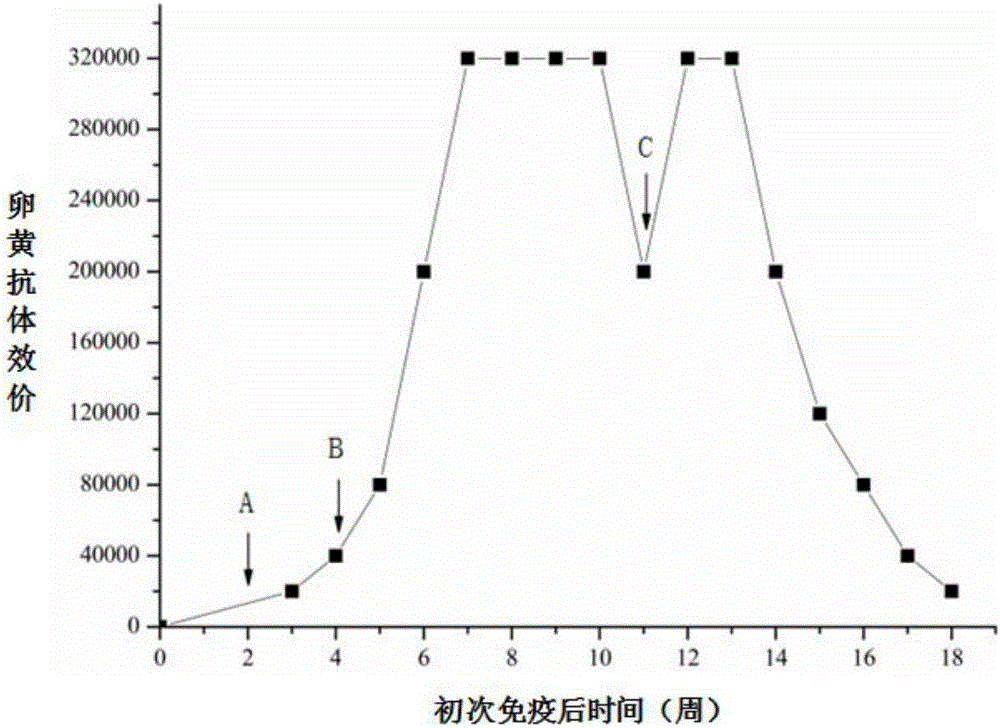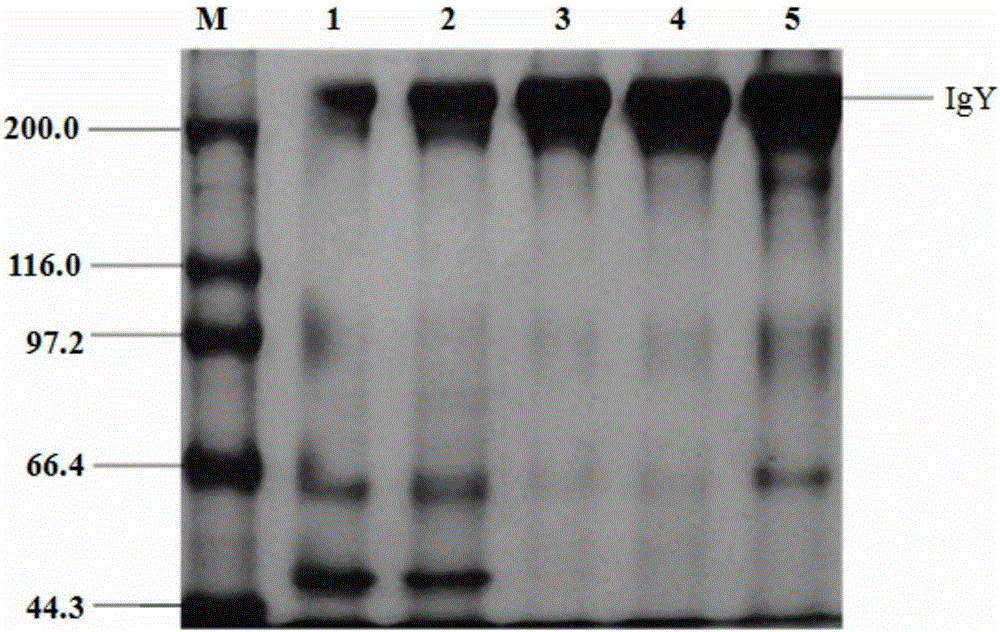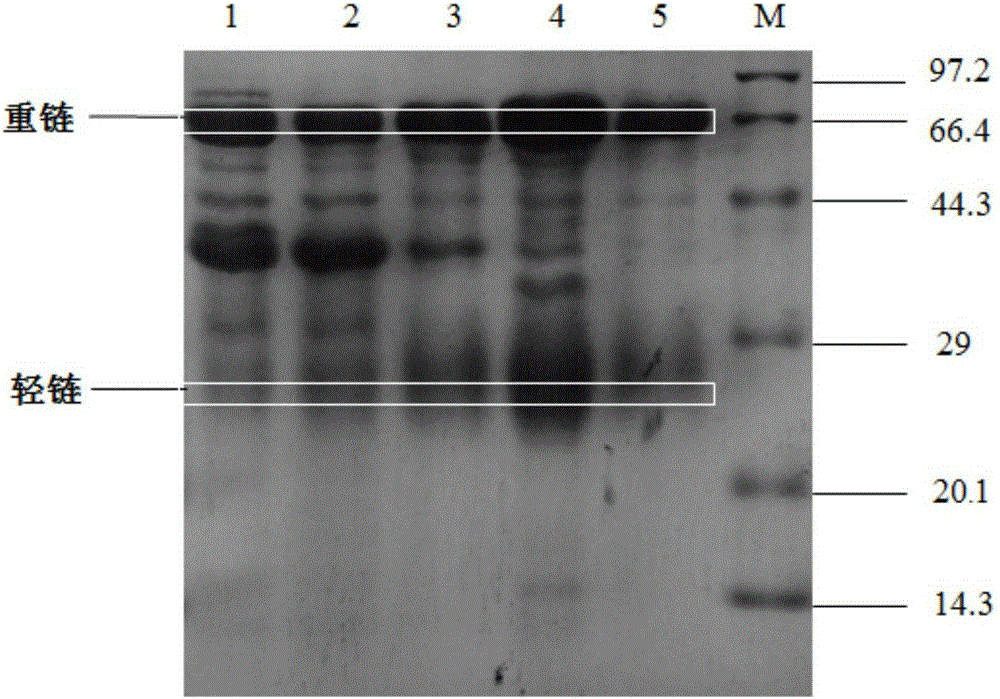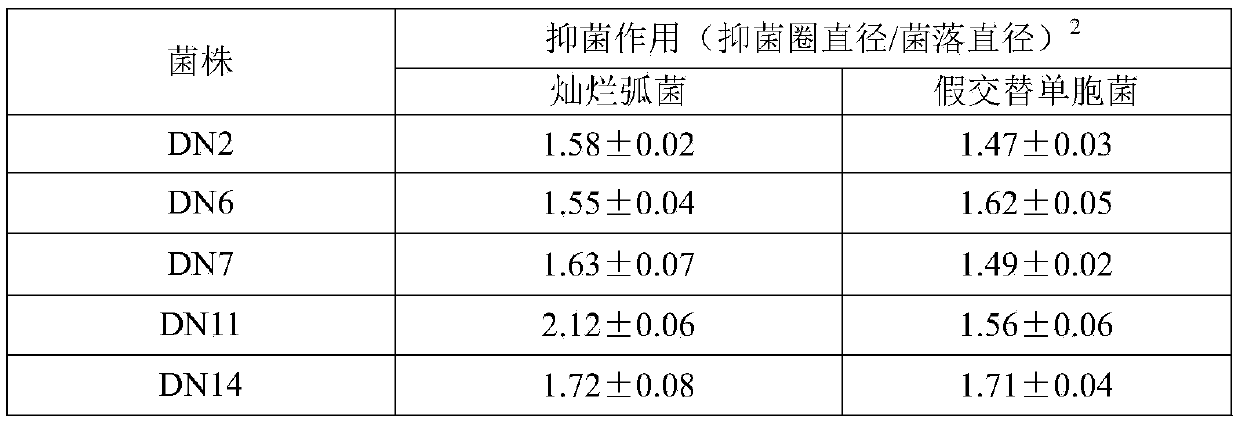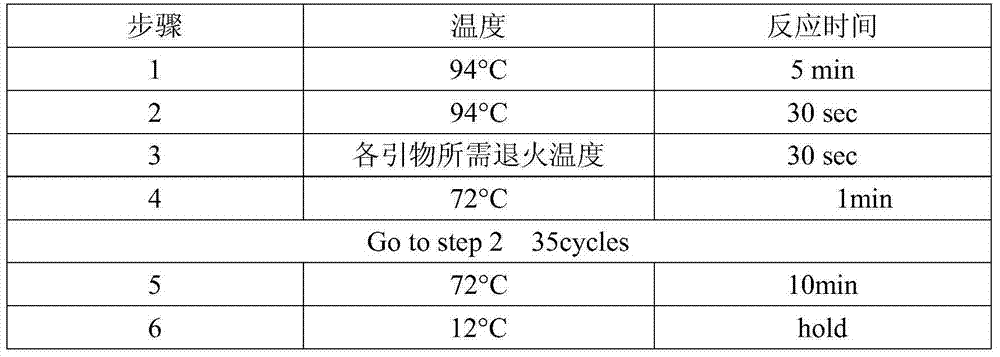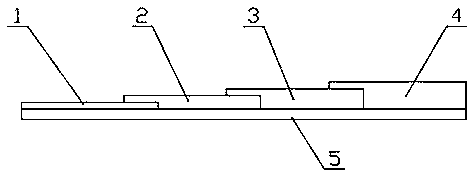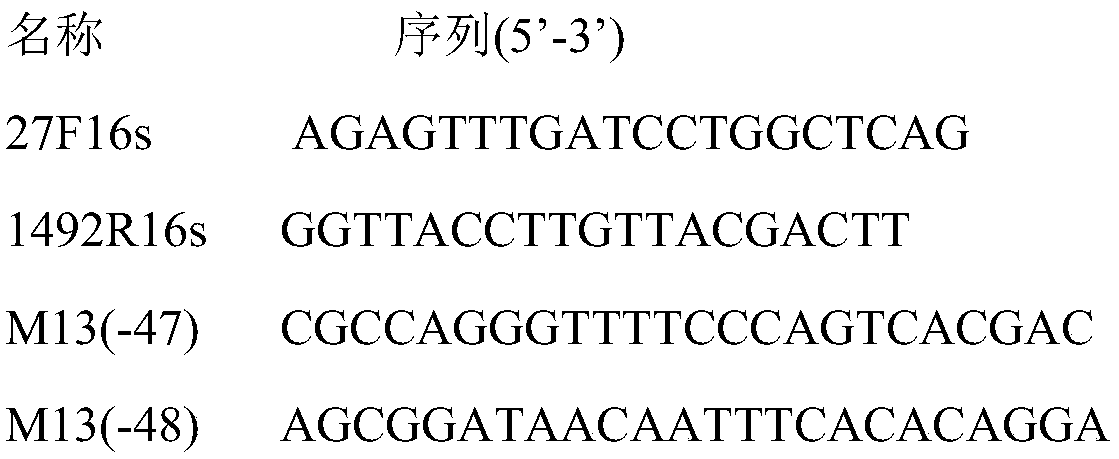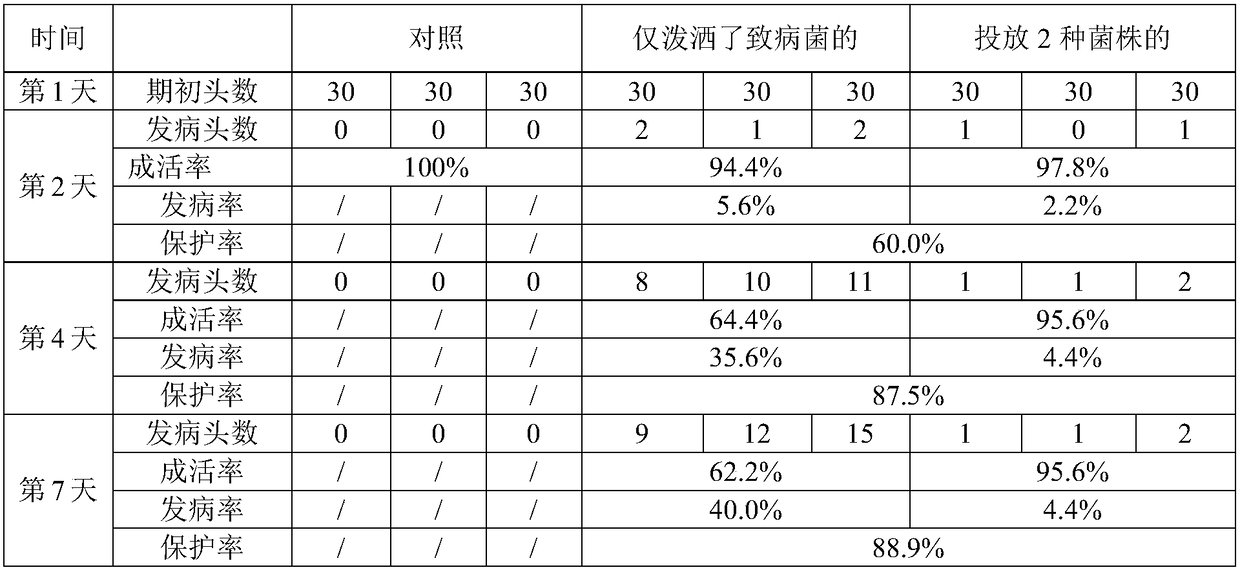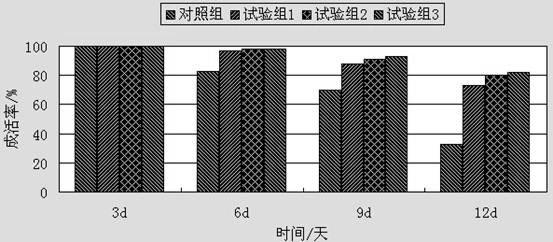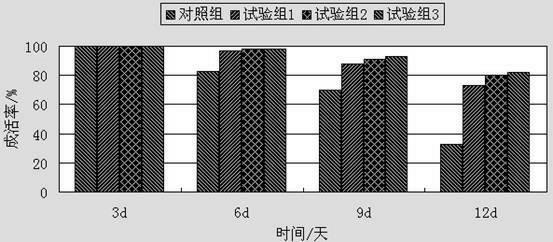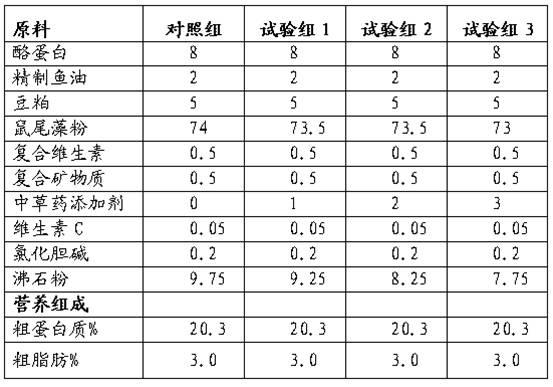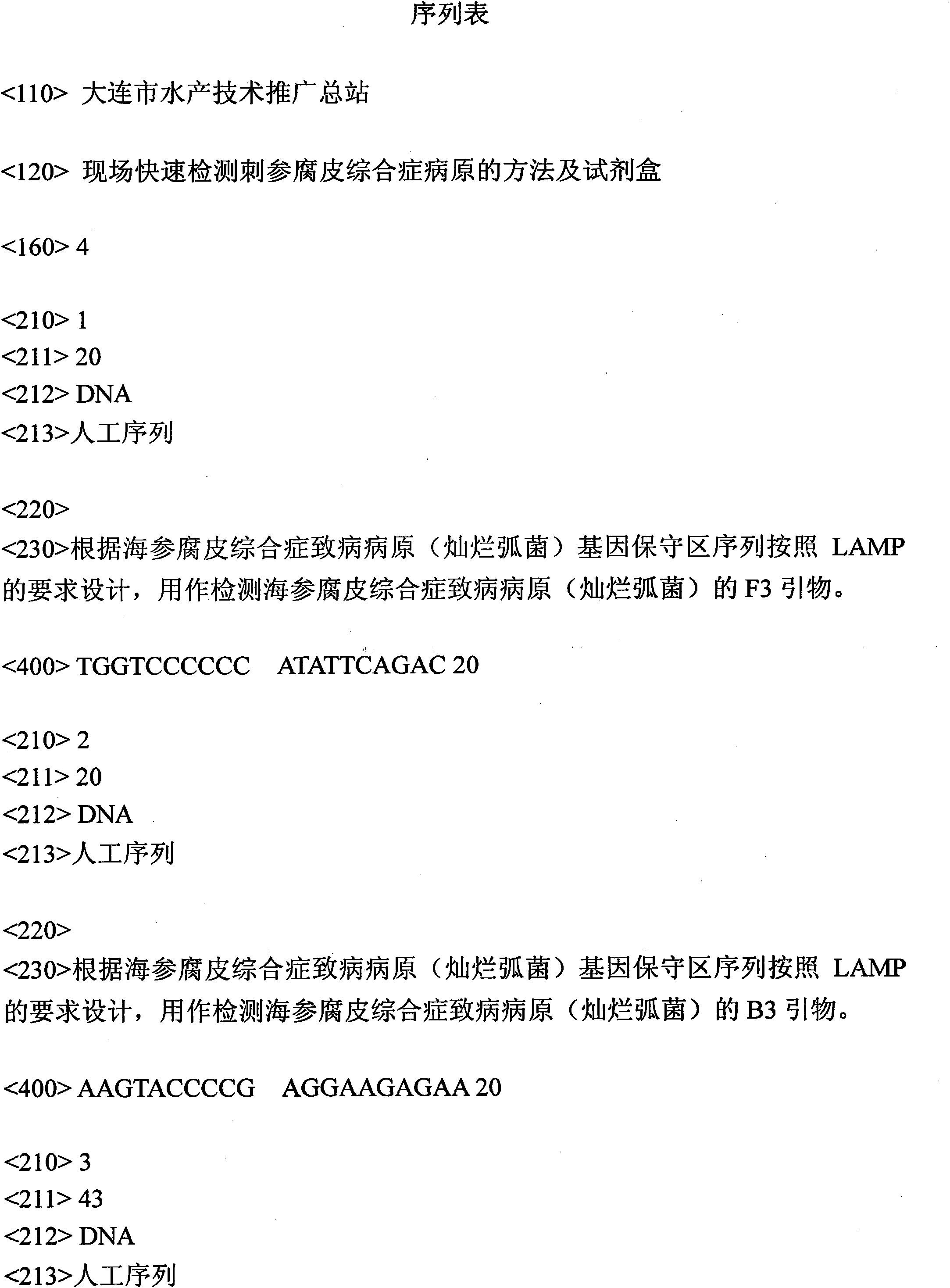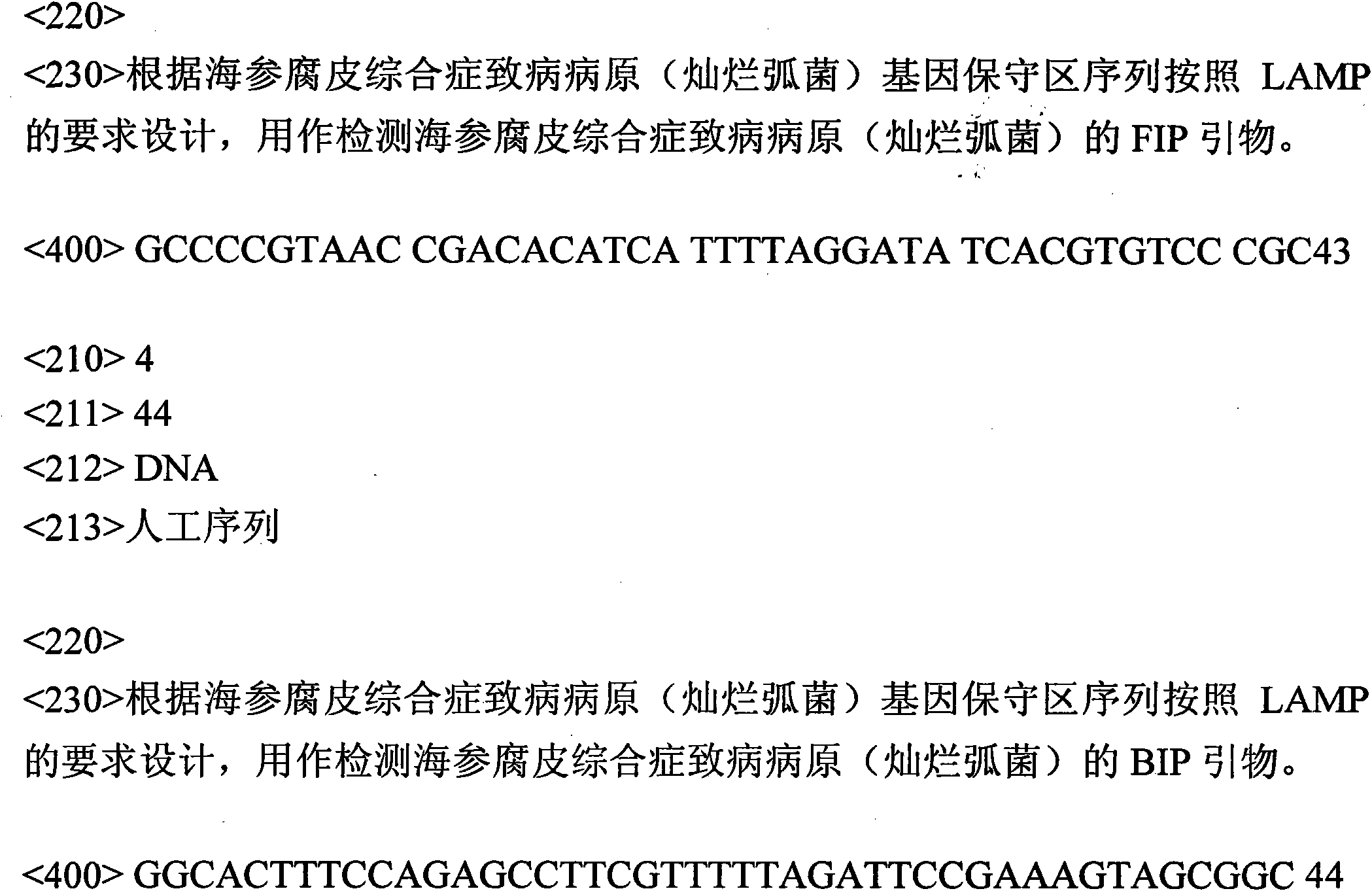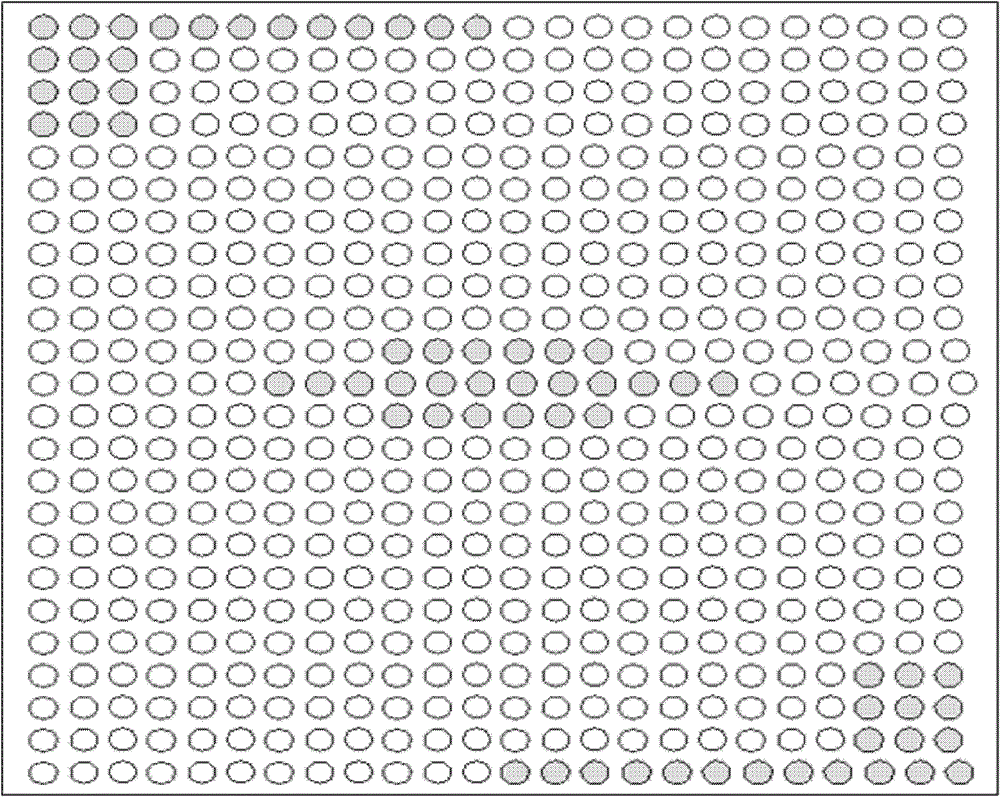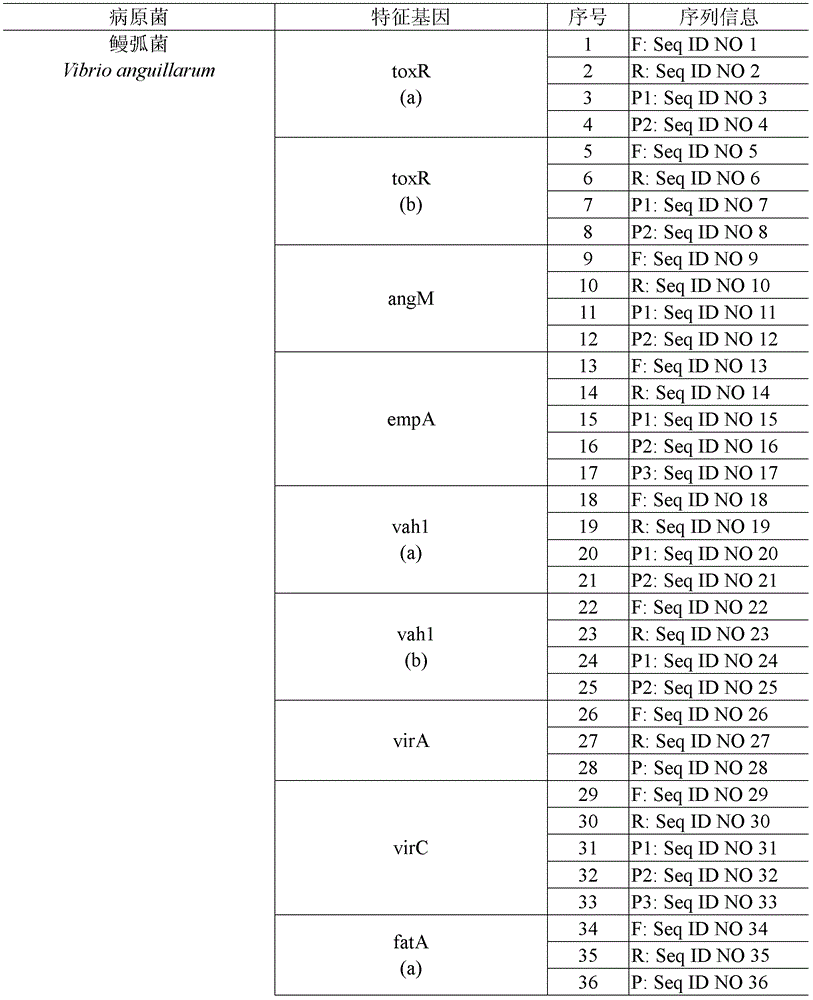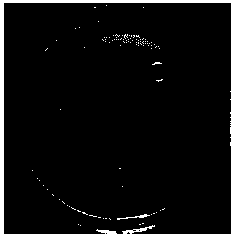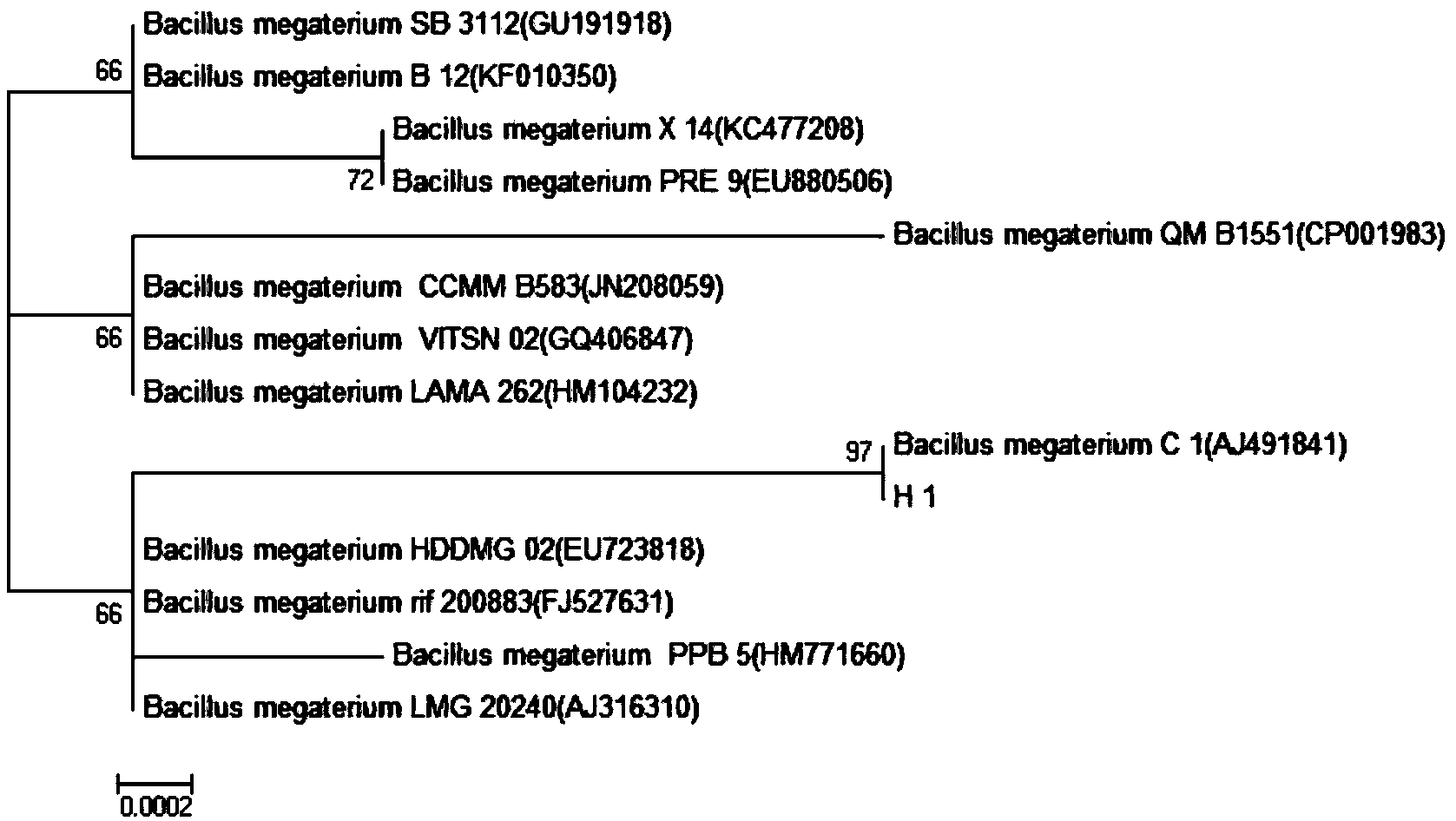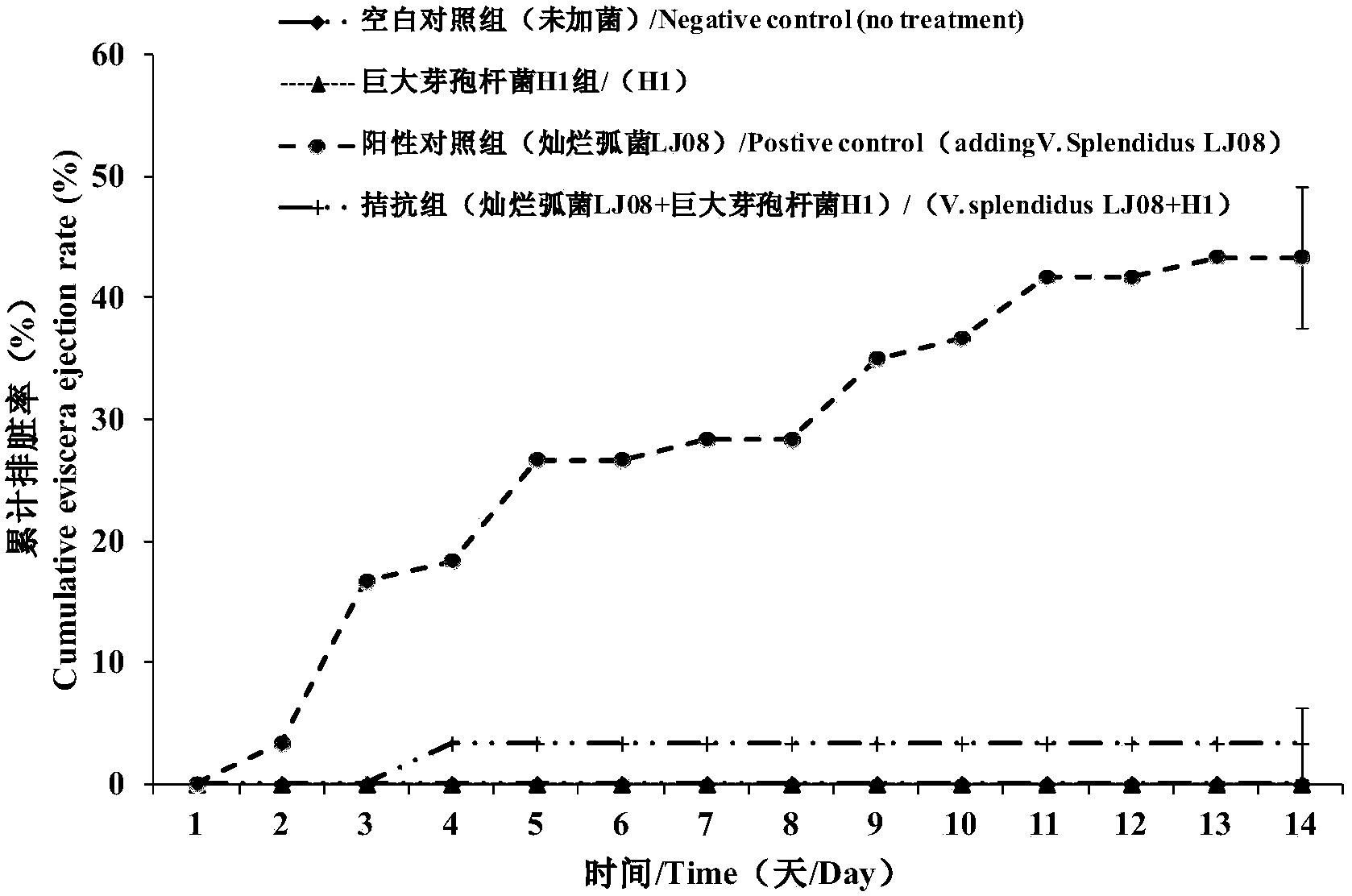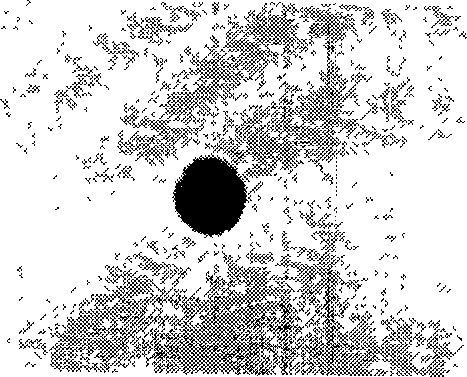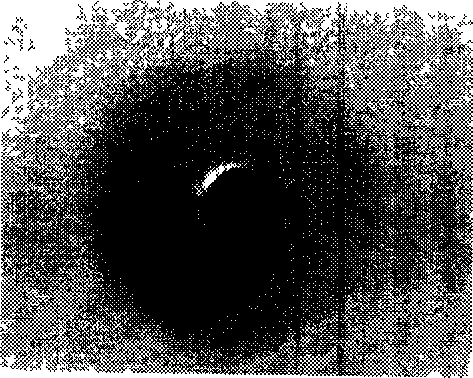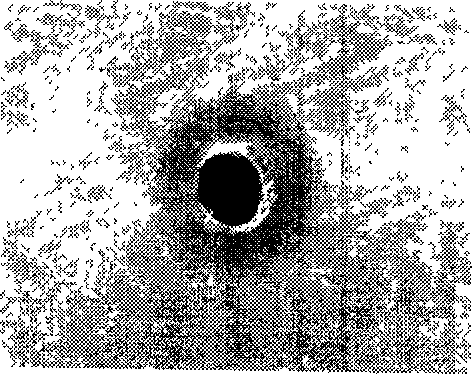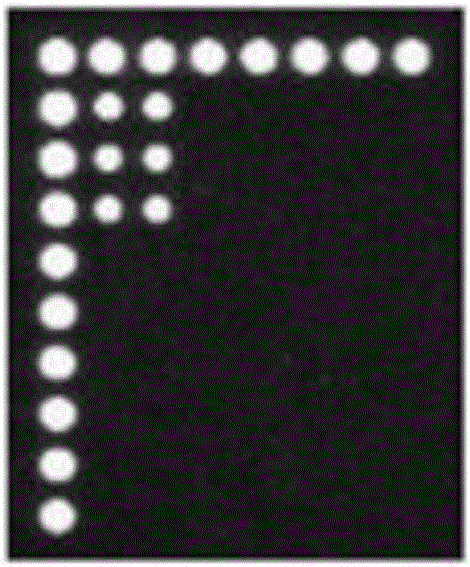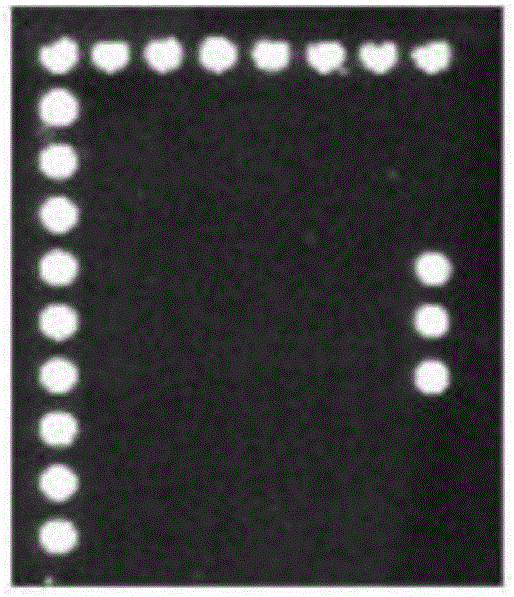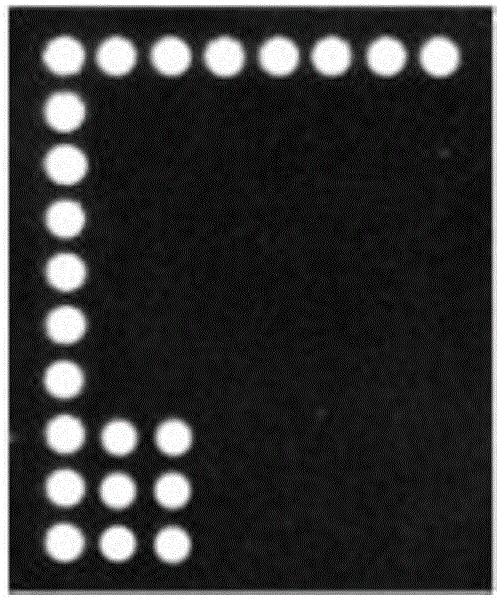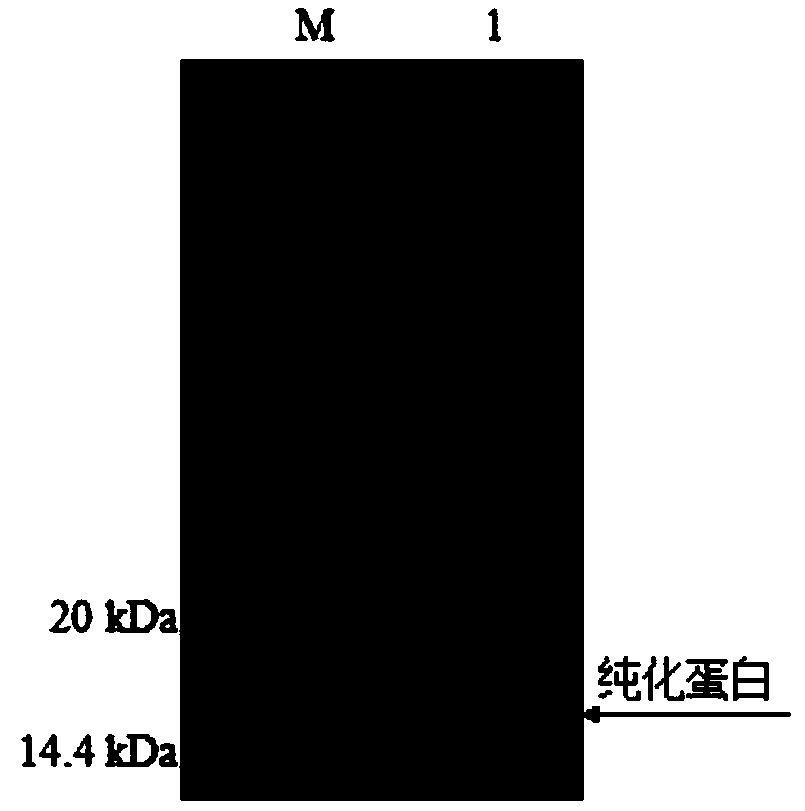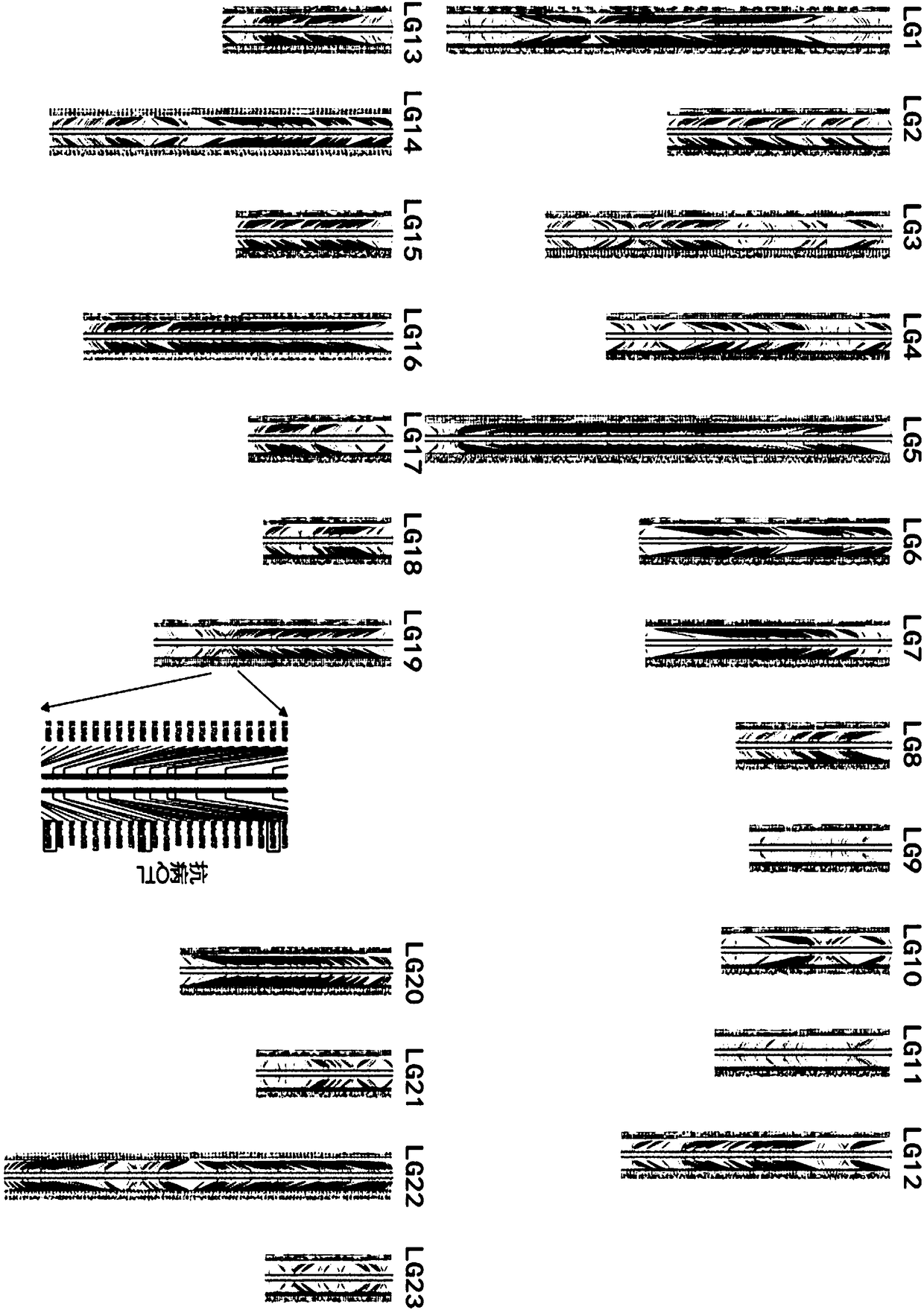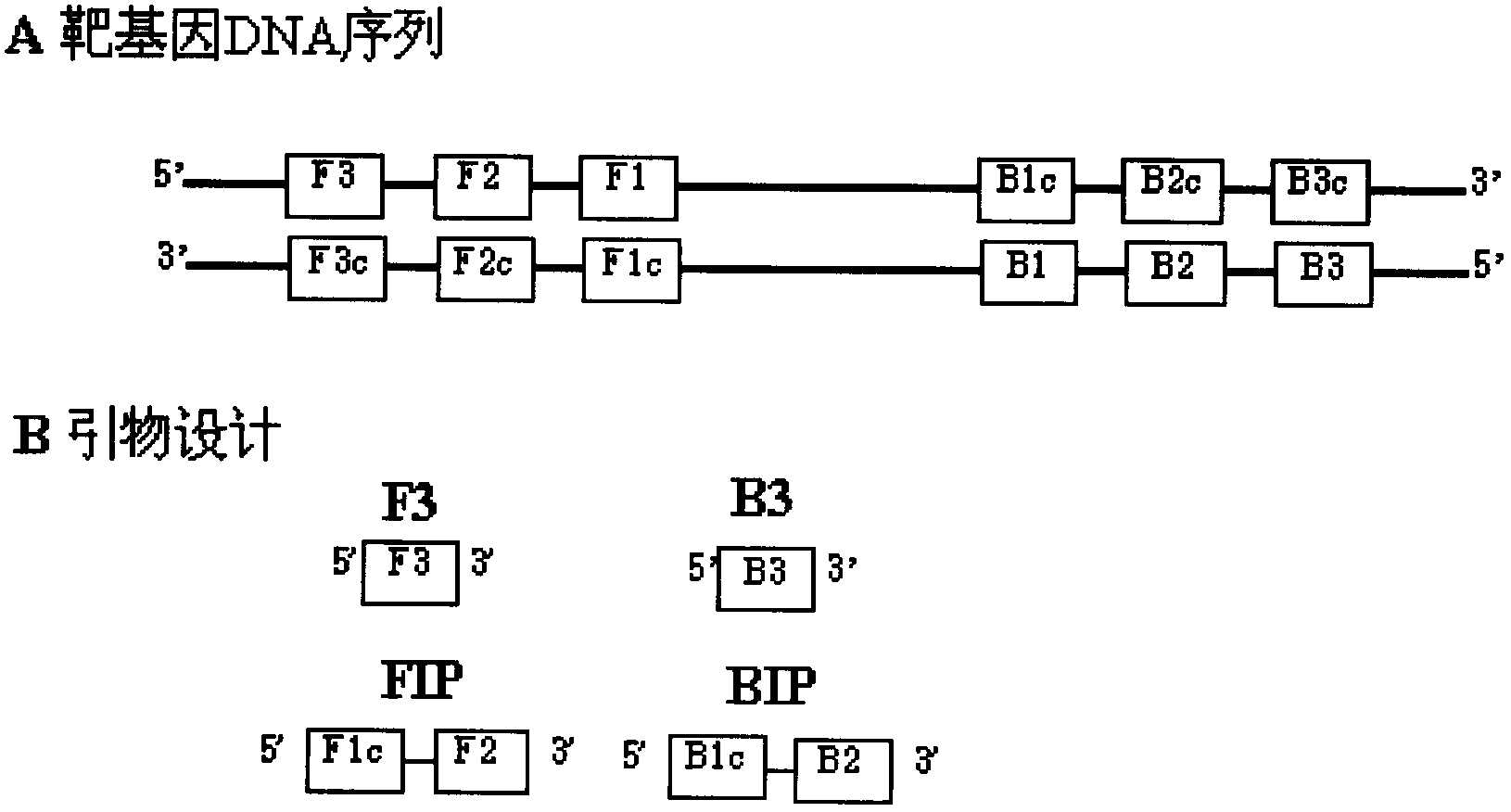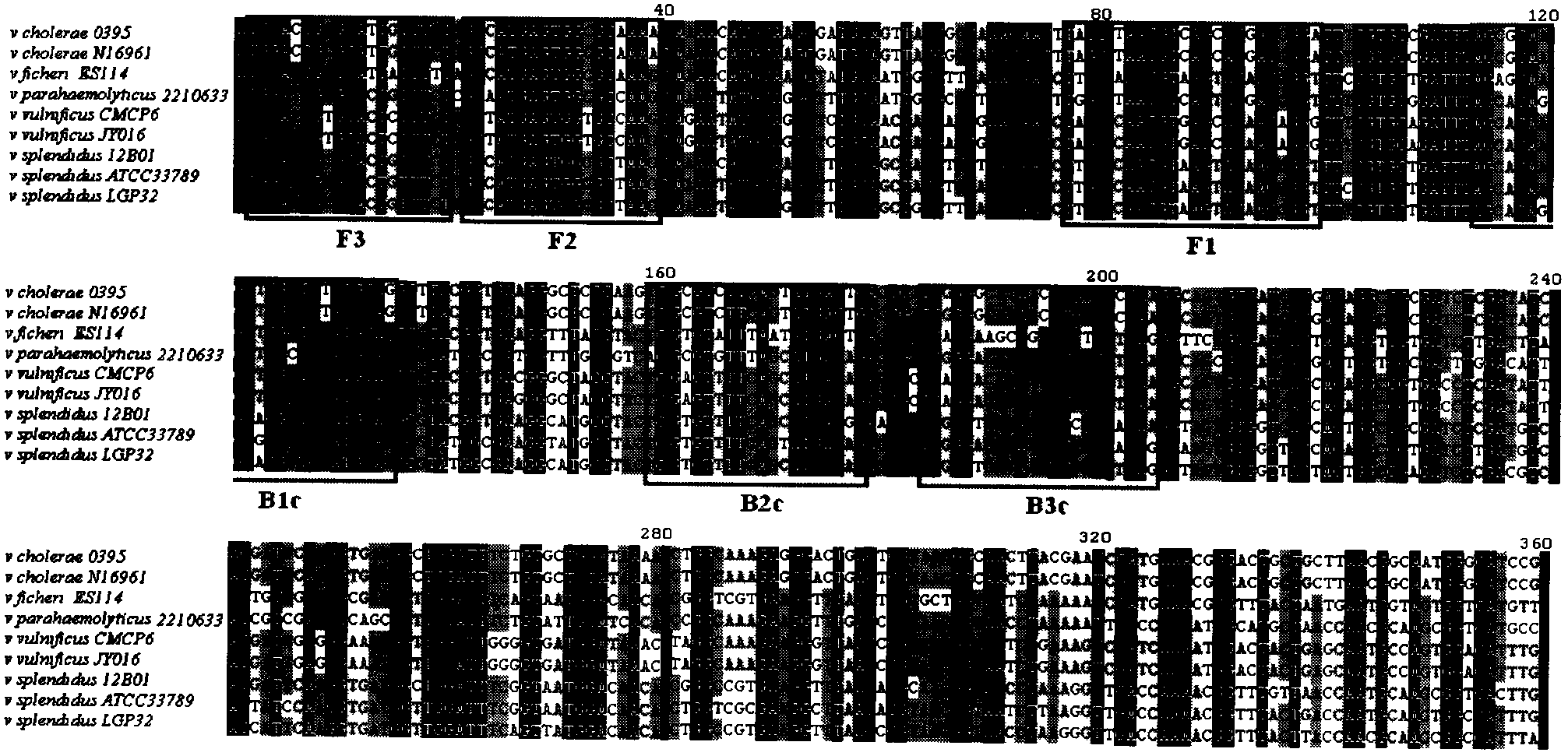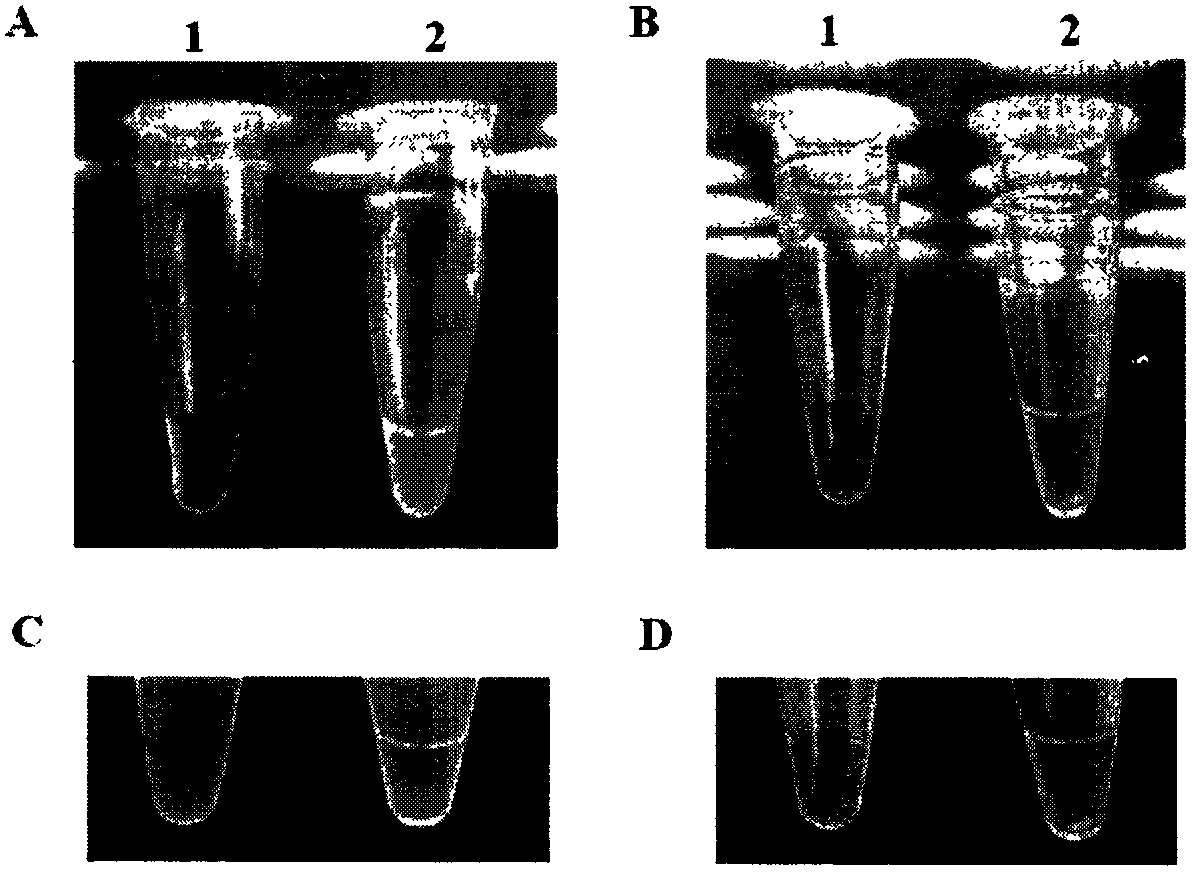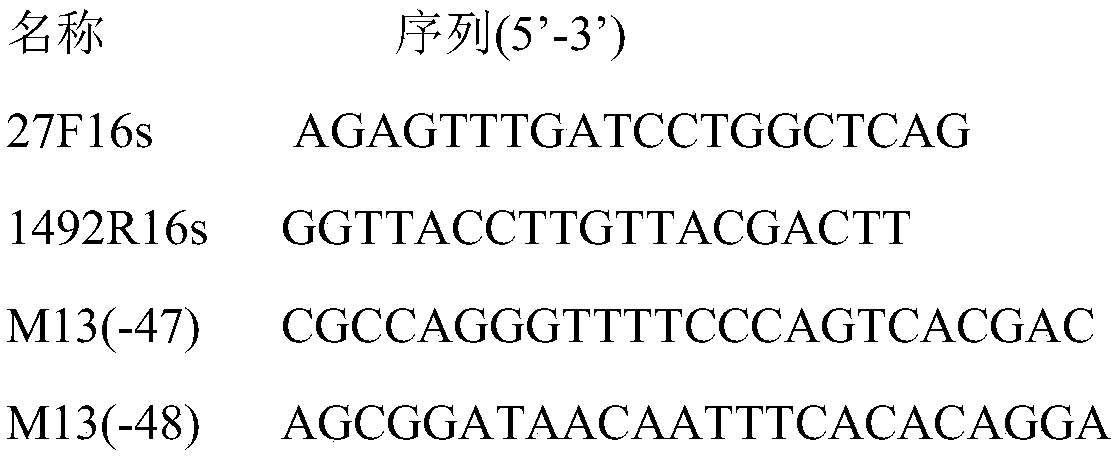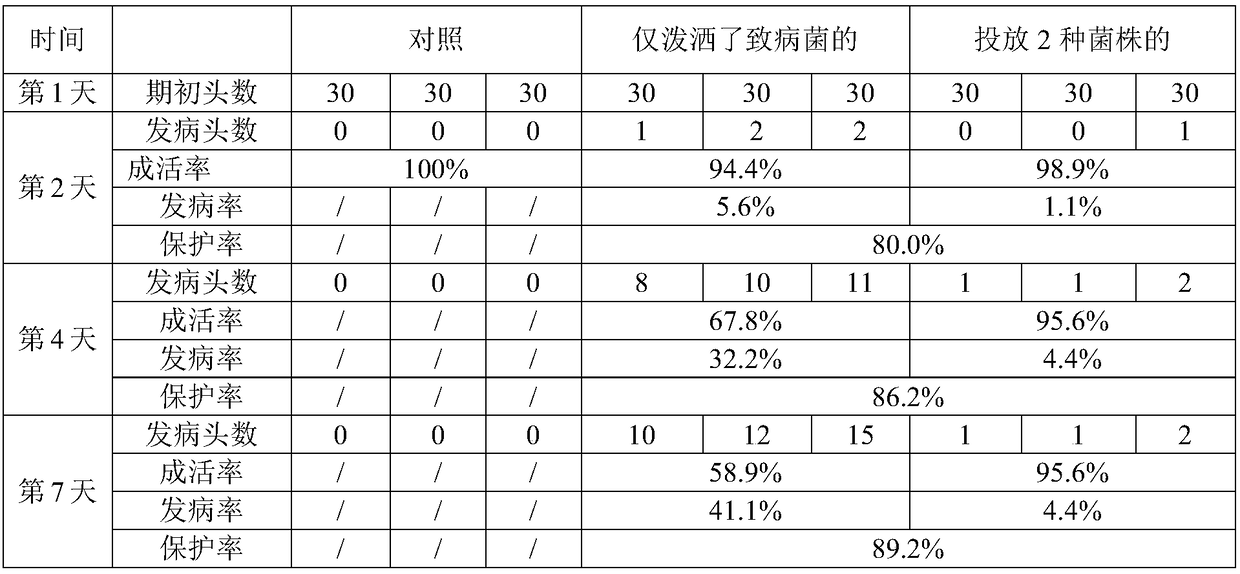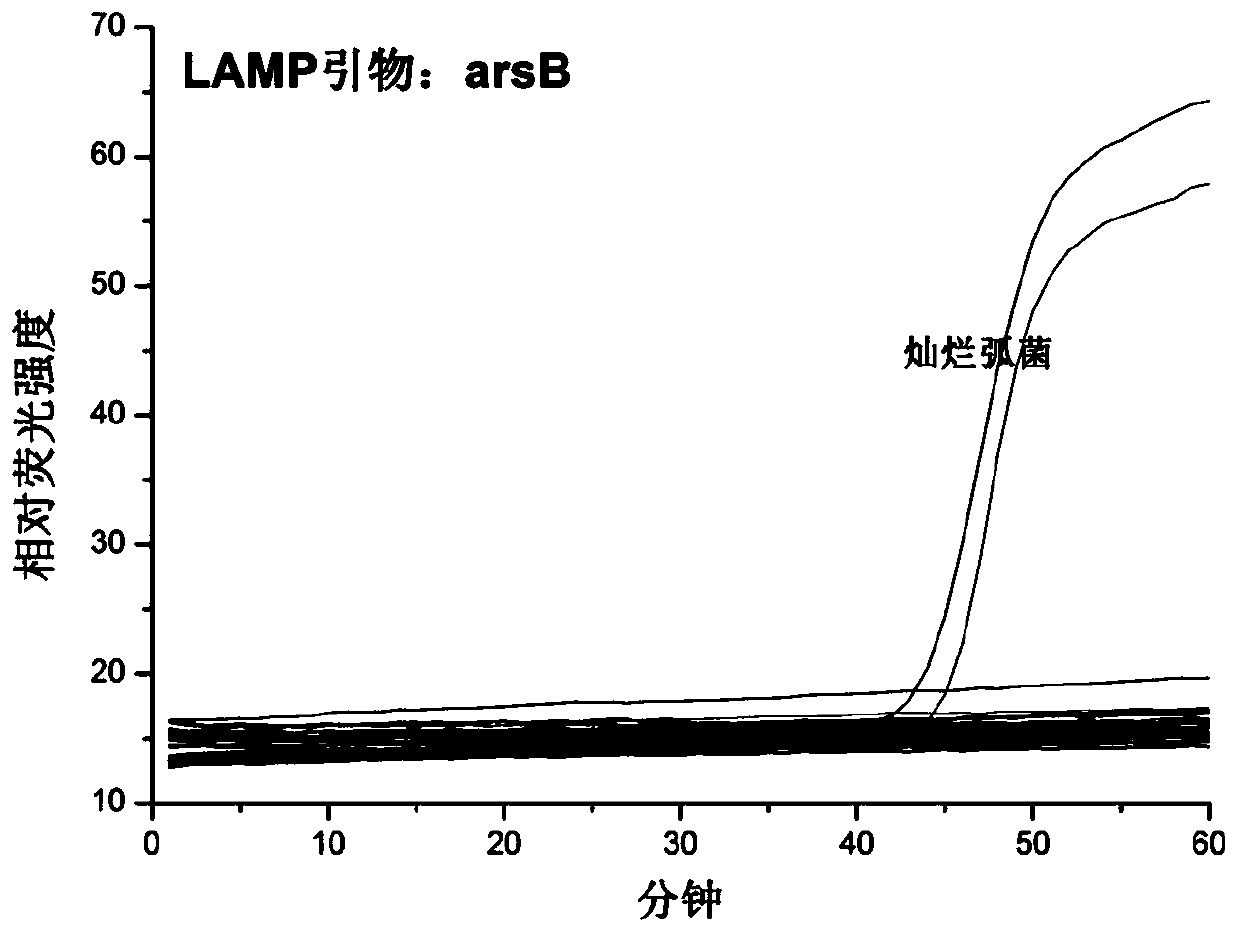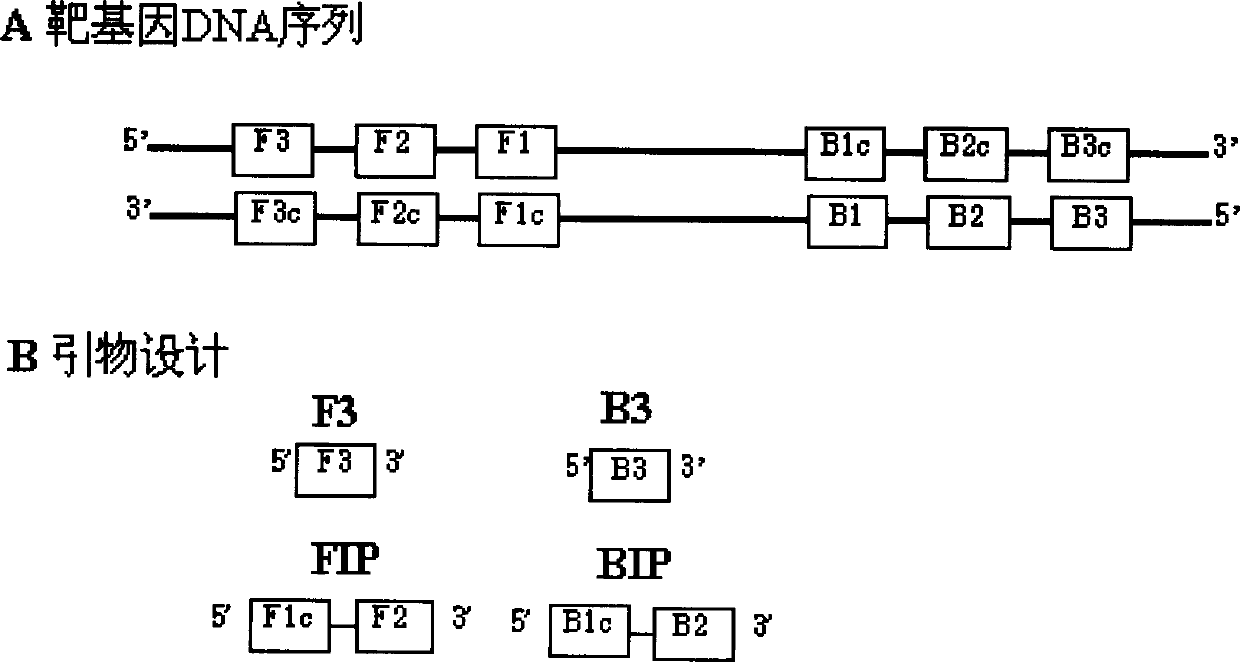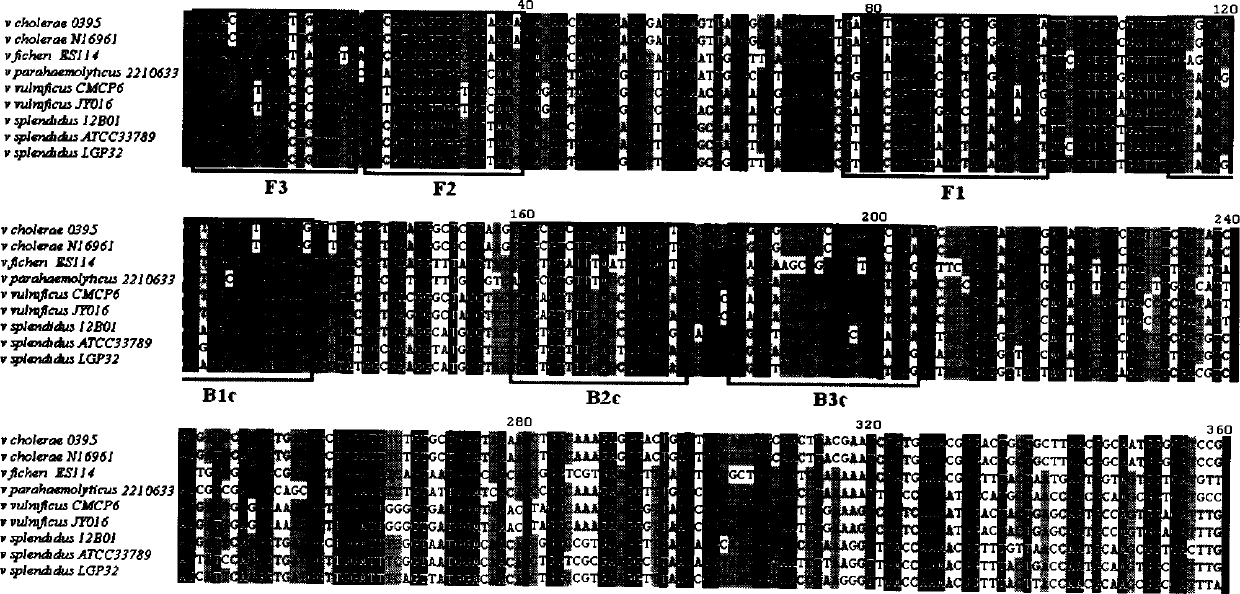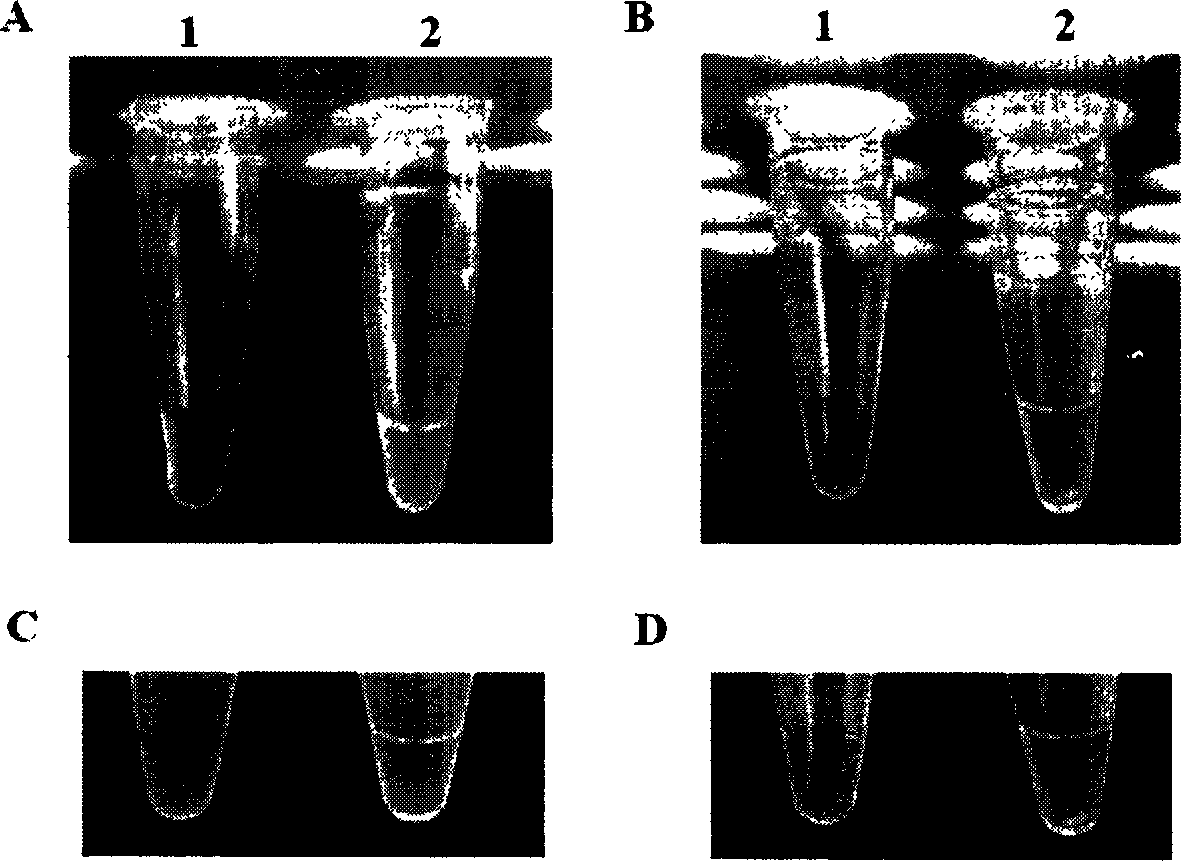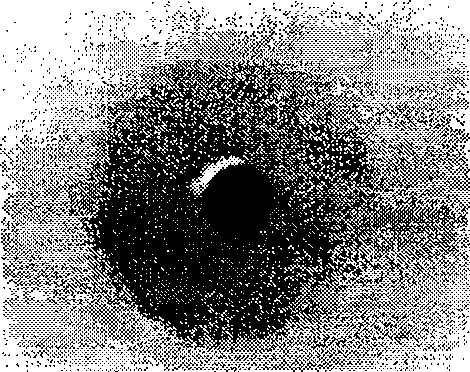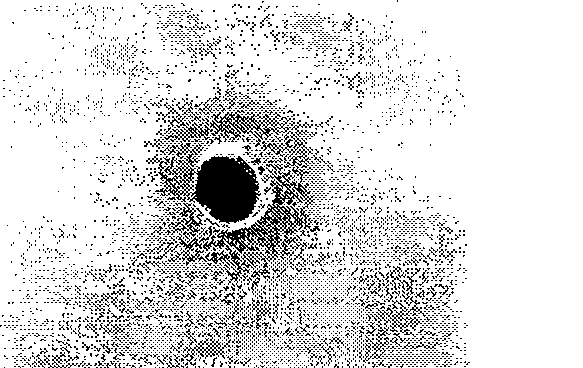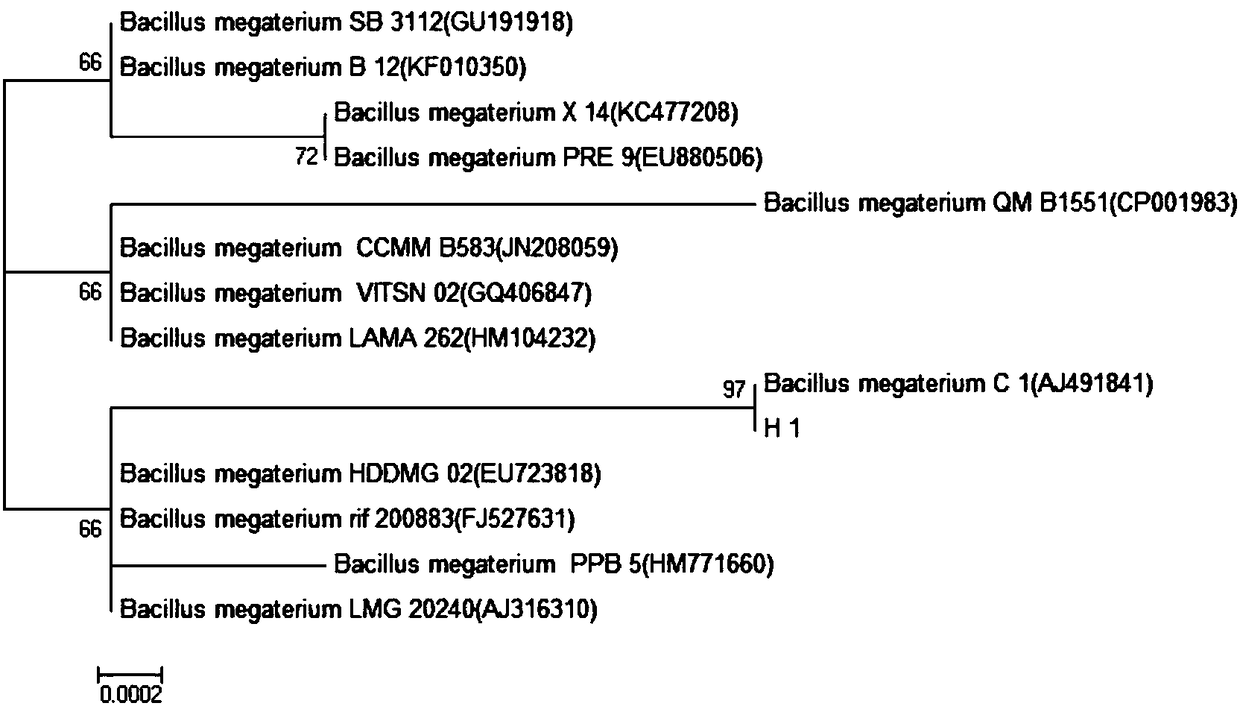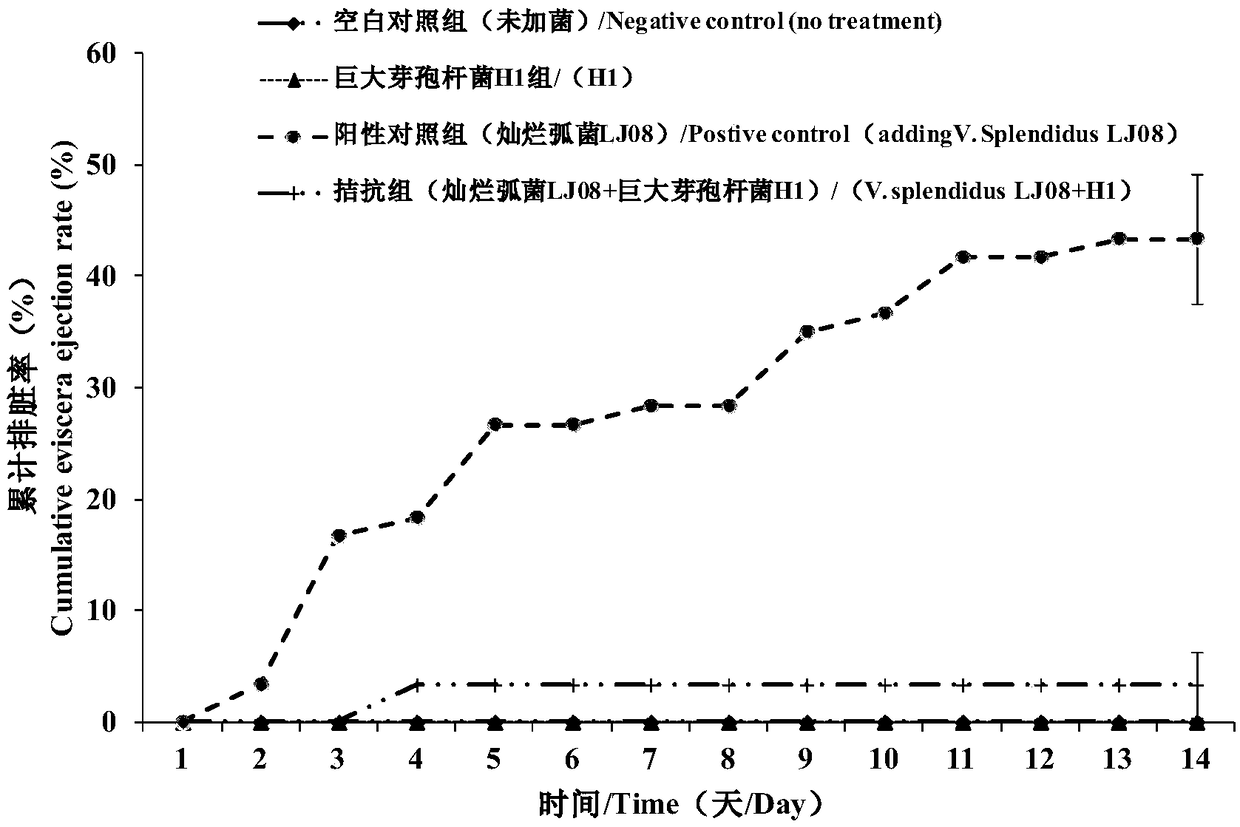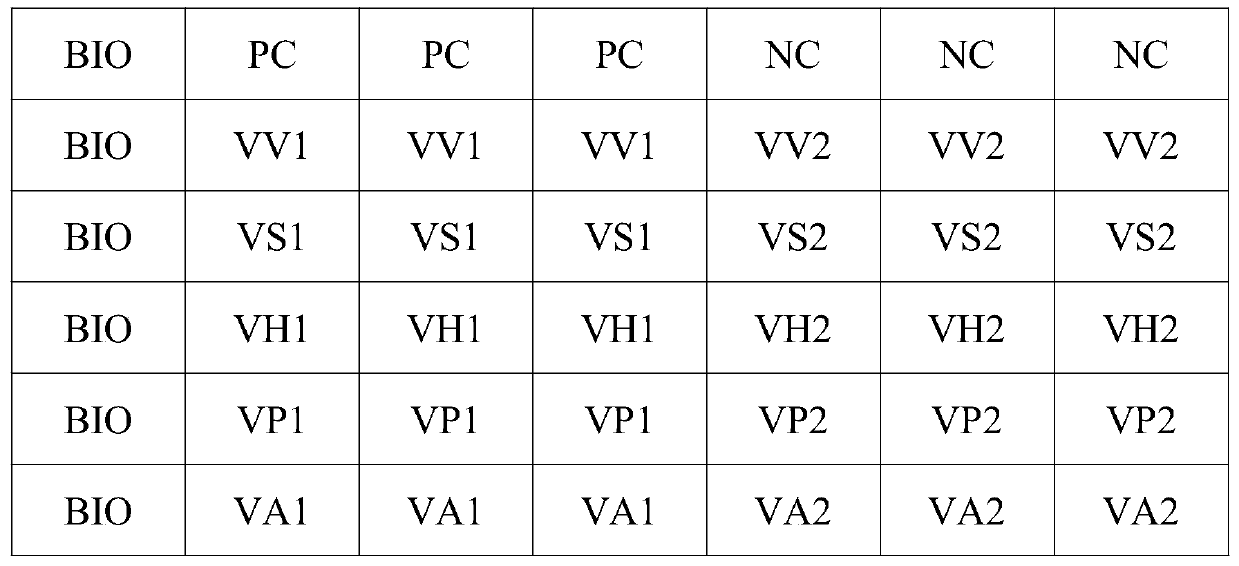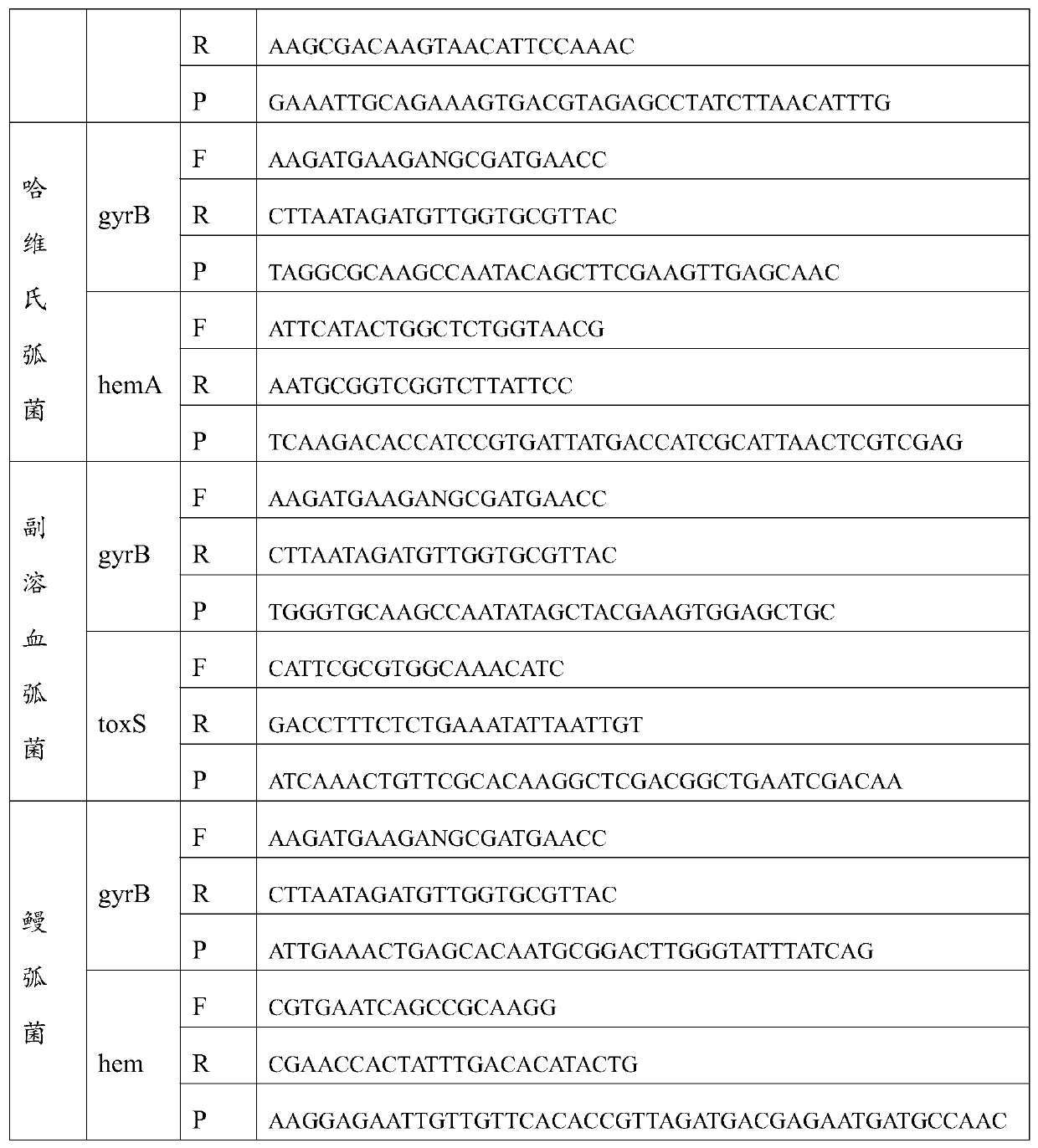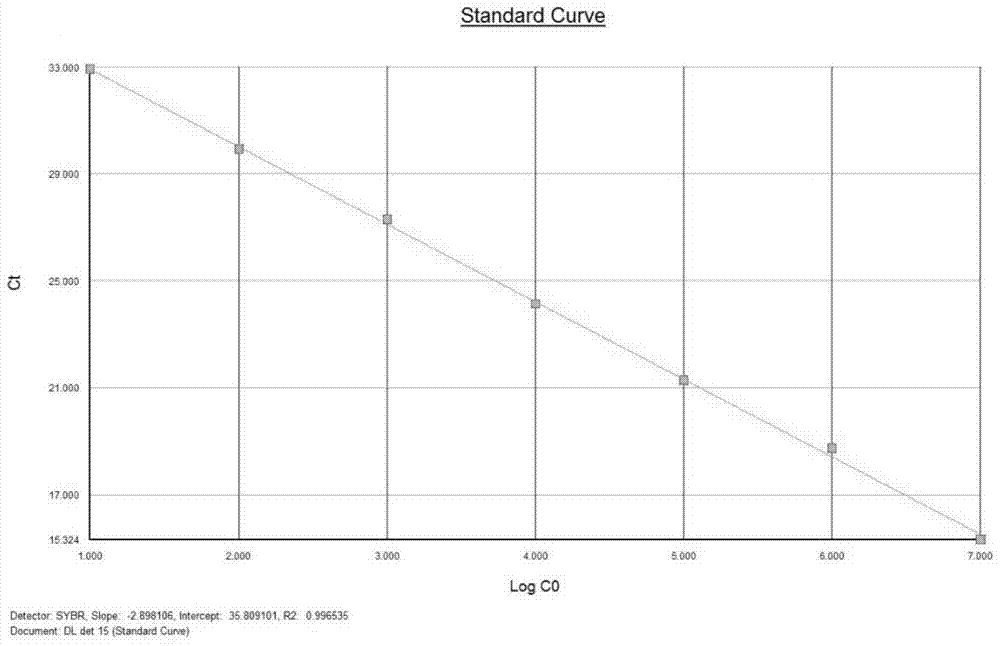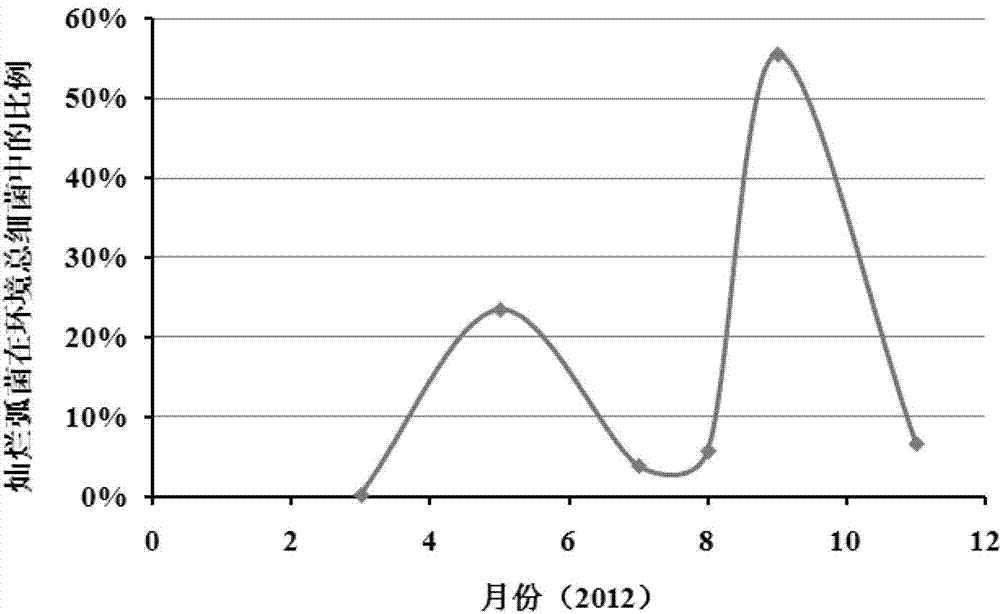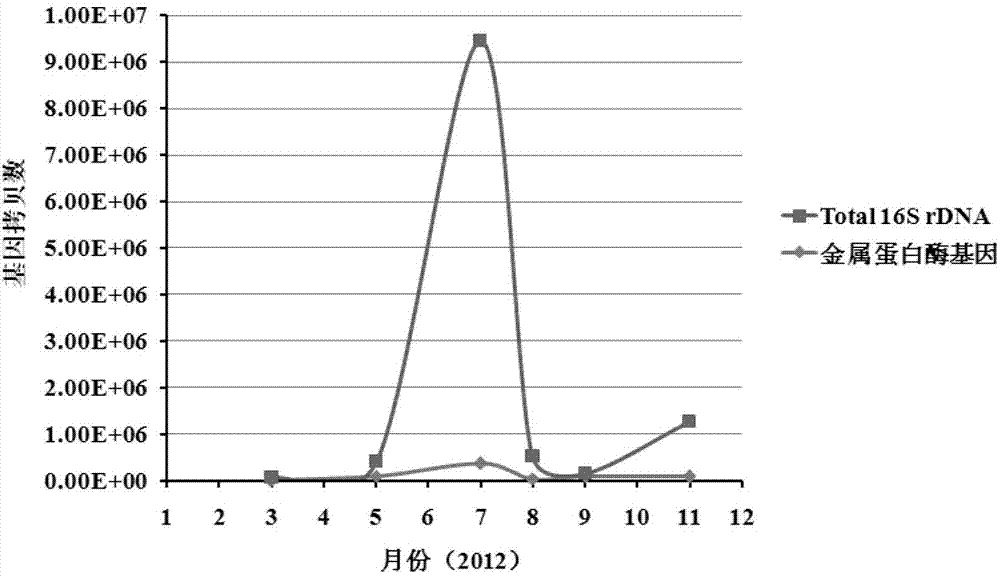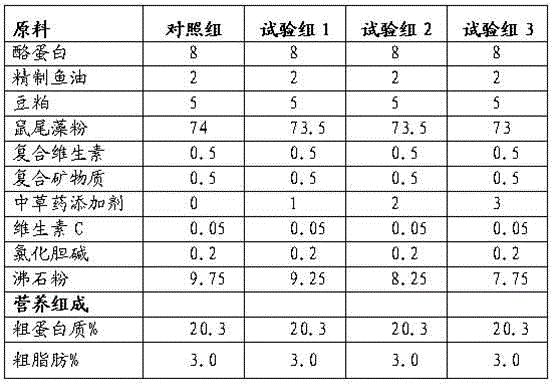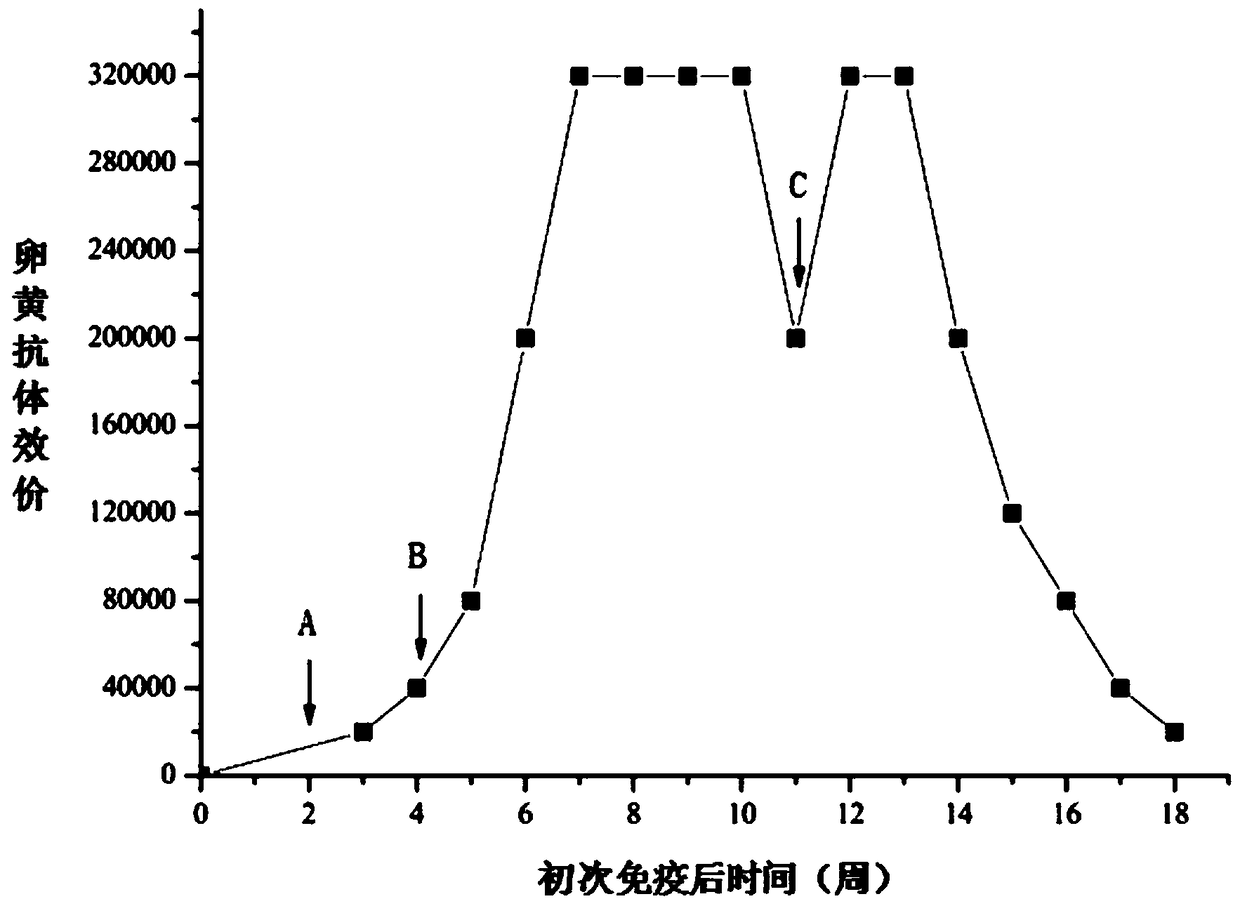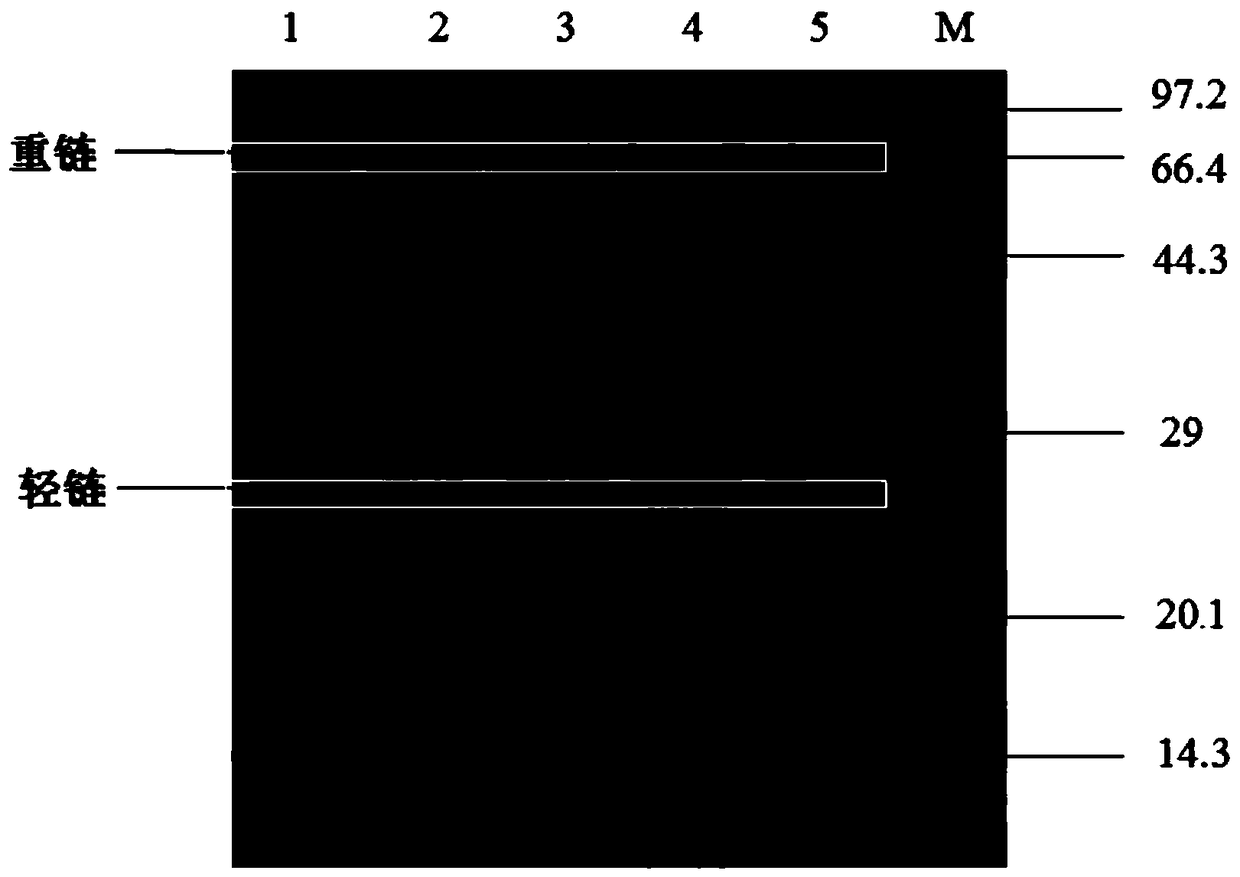Patents
Literature
Hiro is an intelligent assistant for R&D personnel, combined with Patent DNA, to facilitate innovative research.
41 results about "Vibrio splendidus" patented technology
Efficacy Topic
Property
Owner
Technical Advancement
Application Domain
Technology Topic
Technology Field Word
Patent Country/Region
Patent Type
Patent Status
Application Year
Inventor
Vibrio splendidus is a gram negative bacterium. It is rod-shaped, and has perichous polar flagella with sheaths. It is also bioluminescent, and for optimal growth it requires a salt concentration between 300 and 400 mM Na+ [9].
Vibrio-splendidus-resistant egg yolk antibody and preparation method thereof
ActiveCN105198988AStrong specificityHigh potencyAntibacterial agentsEgg immunoglobulinsDiseaseAnimal science
The invention discloses a vibrio-splendidus-resistant egg yolk antibody and a preparation method thereof. The vibrio-splendidus-resistant egg yolk antibody is obtained from a vibrio splendidus immunized laying hens, has features of good specificity and high titer, is used for preventing and treating diseases caused by vibrio splendidus and immunological detection, and has good effects. The vibrio-splendidus-resistant egg yolk antibody is obtained by extracting hyperimmune eggs laid by the vibrio splendidus immunized laying hens, blood sampling is not required, immunized animals are not injured, and modern animal rights protection rules are met; and each egg contains more than 100mg of the vibrio-splendidus-resistant egg yolk antibody approximately, and 3g of the vibrio-splendidus-resistant egg yolk antibody can be obtained in a month, and is 10-20 times greater than an antibody extracted from blood of an immunized rabbit. The vibrio-splendidus-resistant egg yolk antibody has the advantages of safety, environmental protection, high efficiency, low cost and the like, and is easy to industrialize.
Owner:DALIAN UNIV OF TECH
Bacillus licheniformis and feed additive comprising same
ActiveCN105368750AReduce diseasePromote growthBacteriaAnimal feeding stuffBacillus licheniformisDisease
The invention relates to the technical field of functional microbiological screening and provides novel Bacillus licheniformis DN29 which is collected under CCTCC NO: M2015482. The Bacillus licheniformis DN29 obtained by screening can effectively inhibit pathogenic bacteria such as Vibrio splendidus and pseudoalteromonas, can reduce disease probability of bred animals and can serve as a feed additive to remarkably increase feed utilization rate of the bred animals and promote growing of the animals. The Bacillus licheniformis DN29 can serve as a probiotic to be applied in the process of rearing and producing Stichopus japonicus, has remarkable promoting effect on growing of Stichopus japonicus and can effectively improve immunity of and resistance, to Vibrio splendidus, of Stichopus japonicus.
Owner:青岛玛斯特生物技术有限公司 +1
Gene chip for detecting ten types of pathogenic bacteria in sea areas
InactiveCN103540668AReduce dosageImprove throughputMicrobiological testing/measurementAgainst vector-borne diseasesVibrio anguillarumVibrio parahaemolyticus
The invention discloses a gene chip for detecting ten types of pathogenic bacteria in sea areas. The gene chip comprises a solid phase slide on which a quality control probe and a detection probe are arranged, wherein the nucleotide sequence components of the detection probe are shown in SEQ ID NO.1-SEQ ID NO.27. The gene chip is capable of simultaneously detecting enterobacter cloacae, edwardsiella tarda, streptococcus faecalis, vibrio fortis, vibrio harveyi, vibrio parahaemolyticus, vibrio splendidus, vibrio vulnificus, vibrio anguillarum and shewanella smarisflavi just in the presence of DNA (deoxyribose Nucleic Acid) without need of live bacteria. The gene chip has remarkable advantages of high throughput, parallelism, miniaturization, automation, rapidness, sensitiveness, quantification, small use amount, and the like.
Owner:NINGBO UNIV
Probiotic with bacteriostatic ability and application thereof
ActiveCN103525721AEnhanced inhibitory effectGrowth inhibitionAntibacterial agentsAntimycoticsDiseaseAmpicillin
The invention relates to the field of microbial disease control and in particular relates to a probiotic with bacteriostatic ability. The probiotic is Enterobacter ludwigii-PC88, is collected in China General Microbiological Culture Collection Center (CGMCC) on June 24, 2013, and has a collection number of CGMCC No.7814. The probiotic is separated from intestinal tracts of healthy flounders. The pure culture of the probiotic has relatively strong inhibitory effects on aquatic pathogens such as vibrio splendidus, vibrio harveyi, vibrio parahaemolyticus, pseudomonas aeruginosa and vibrio anguillarum, also can inhibit growth of known human pathogens such as tritirachium album, staphylococcus aureus and klebsiella pneumoniae, and has resistance to ampicillin. The pure culture or composition of the probiotic can be used for control of aquaculture diseases and development of novel antibacterial materials, and has good application prospects.
Owner:YANTAI INST OF COASTAL ZONE RES CHINESE ACAD OF SCI
Gold-labelled nucleic acid test strip for quickly detecting aquatic diseases and preparation method thereof
ActiveCN109187970ABreak dependenciesThe detection method is simpleMaterial analysisAgainst vector-borne diseasesDiseaseNucleic acid test
The invention relates to a gold-labelled nucleic acid test strip for quickly detecting aquatic diseases. The gold-labelled nucleic acid test strip comprises a sample pad, a gold-labelled pad containing probe Probe1-AuNPs composite, a nitrocellulose membrane and a water absorbent pad; a detection line and a quality control line which are separated from each other are respectively adsorbed on the nitrocellulose membrane; the detection line is composed of a probe2, and the quality control line is composed of the probe 1'; the probe1 and the probe2 are respectively designed by selecting a characteristic conserved segment from a vibrio splendidus toxicity gene sequence and using the 5' end and 3' end of the characteristic conserved segment, and then a complementary sequence Probe1' is designedaccording to the probe1. A nano-gold nucleic acid probe is used as the label in the development of the gold-labelled nucleic acid test strip, and the vibrio splendidus is detected through a thin-filmchromatography measure, thereby providing simple, convenient and efficient detection method for the disease control of the vibrio splendidus.
Owner:YANTAI TUOPUBANG BIOTECH
Vibrio splendidus colloidal gold immunochromatograohic assay test strip and preparation method thereof
The invention discloses a vibrio splendidus colloidal gold immunochromatograohic assay test strip capable of rapidly detecting pathogenic bacteria of stichopus japonicus 'bark rot' and a preparation method thereof. The test strip comprises a bottom plate, wherein a sample pad, a gold-labeled pad, a nitrocellulose membrane and a water absorbent pad are sequentially adhered onto the bottom plate from one end from top to bottom in a stepped manner; a colloidal gold labeled vibrio splendidus flagellin FlgT monoclonal antibody is sprayed onto the gold-labeled pad; a detection line a coated with a vibrio splendidus polyclonal antibody and a quality control line b composed of goat anti-rat IgG are arranged on the nitrocellulose membrane; and the vibrio splendidus flagellin FlgT monoclonal antibody is prepared by immunizing mice by hybridoma cells 4A5 with a collection number of CGMCC No. 14311, and purifying mouse ascites obtained.
Owner:DALIAN OCEAN UNIV
Bacillus subtilis producing lipase and inhibiting Vibrio splendidus and use method thereof
ActiveCN108949616AIncrease profitAvoid economic lossBacteriaAnimal feeding stuffMicroorganismMicrobiology
The invention provides a strain of Bacillus subtilis ZF003 (Bacillus subtilis s), which is preserved in China General Microbiological Culture Collection Center and is assigned the accession number ofCGMCC No.15645, preservation date being Apr 26th, 2018. The invention also discloses an application of the Bacillus subtilis, wherein the Bacillus subtilis is applied to cultivation of stichopus japonicas, comprising two processes: (1) fermenting a stichopus japonicas feed with the Bacillus subtilis; (2) spreading a microbial liquid of the Bacillus subtilis in a breeding pool of the stichopus japonicas. The strain, on one hand, can secrete the lipase extracellularly, so that fat in the feed is decomposed by the lipase; and on the other hand, the strain can inhibit the main pathogenic bacteria,Vibrio splendidus, of skin ulcer syndrome of the stichopus japonicas.
Owner:QINGDAO AGRI UNIV
Feed additive for stichopus japonicus, preparation method and compound feed containing feed additive
ActiveCN102326682AFast growthImprove immune activityClimate change adaptationAnimal feeding stuffBiotechnologyMedicinal herbs
The invention discloses a feed additive for stichopus japonicus, a preparation method and a compound feed containing the feed additive. The feed additive for the stichopus japonicus comprises the following raw materials: rhubarb, baical skullcap root, Chinese gall, honeysuckle flower, wild chrysanthemum, indigowoad root and a synergistic agent. The preparation method comprises the following stepsof: weighing the raw materials in a weight ratio; crushing all the raw materials; and putting all the crushed raw materials into a mixer sequentially, and mixing uniformly. The compound feed containing the additive comprises 1 to 3 weight percent of additive. The technical scheme provided by the embodiment of the invention has the advantages that: the additive is prepared from Chinese medicinal herbs, does not have medicinal tolerance and toxic or side effects, can improve the growth speed of the stichopus japonicus obviously, improve the immunological activity of the stichopus japonicus and enhance the disease-resistant capacity of the stichopus japonicus, and has extremely high resistance to vibrio splendidus serving as main pathogenic bacteria. The stichopus japonicus is difficult to sicken, the survival rate is improved obviously, and the production benefit is improved obviously.
Owner:SHANDONG NEW HOPE LIUHE GROUP
Method for quickly detecting pathogen of skin ulcerative syndrome in Apostichopus japonicus on site and kit thereof
InactiveCN102031302AAvoid spreadingReduction in incidenceMicrobiological testing/measurementLoop-mediated isothermal amplificationVibrio splendidus
The invention discloses a method for quickly detecting pathogen of skin ulcerative syndrome in Apostichopus on site and a kit thereof. In the method, two pairs of primers, particular operation steps and the kit aiming at the vibrio splendidus are designed by using a loop-mediated isothermal amplification (LAMP) method. The DNA sequences of the reaction primer are as follows: VS-F3 is 5'-TGGTCCCCCCATATTCAGAC; VS-B3 is 5'-AAGTACCCCGAGGAAGAGAA; VS-FIP is 5'-GCCCCGTAACCGACACATCATTTTAGGATATCACGTGTCCCGC; and VS-BIP is 5'-GGCACTTTCCAGAGCCTTCGTTTTTAGATTCCGAAAGTAGCGGC. By using the method, expensive instrument and equipment or long detecting time is not required, the pathogen can be detected even less pathogen exists. The method has the advantages of low cost, accurate detection and the like, is convenient to operate, real-time monitor can be performed, and the epidemic situation can be discovered in time, the incidence trend of the epidemic disease is reduced, the pathogen can be prevented from distributing in early stage, and more loss brought to raisers is avoided.
Owner:大连市水产技术推广总站
Gene chips for detecting multiple pathogenic bacteria in animals cultivated in sea water and uses thereof
InactiveCN102869785BEffective prevention and controlIncreased sensitivityMicrobiological testing/measurementDihydrogen oxideVibrio anguillarum
The invention provides a gene chip for detecting various seawater cultured animal pathogenic bacteria and its application. The pathogenic bacteria include: Vibrio anguillarum, Vibrio alginolyticus, Vibrio parahaemolyticus, Vibrio harveyi, Vibrio fischeri, Vibrio splendidus, Vibrio riverina, Vibrio vulnificus, Vibrio cholerae non-O1, Vibrio mimicus, Vibrio salmonicida, Aeromonas hydrophila, Aeromonas sobria, Aeromonas salmonicida, Edward tarda Bacillus, Edwardsiella catfish, Renalobacter salmonidum, Mycobacterium marinum, Pseudomonas, Streptococcus.
Owner:YELLOW SEA FISHERIES RES INST CHINESE ACAD OF FISHERIES SCI
Microecological preparation used for preventing and treating apostichopus japonicus putrid skin syndrome and preparation method of microecological preparation
The invention relates to a microecological preparation used for preventing and treating apostichopus japonicus putrid skin syndrome and a preparation method of the microecological preparation and belongs to the field of aquatic microorganisms. Active ingredients of the microecological preparation are thalli of bacillus megatherium H1 and extracellular metabolites of the bacillus megatherium H1; the bacillus megatherium strain is separated from intestinal tract excrement of apostichopus japonicus which is healthily cultivated in Penglai, Shandong, detection of safety, bacteriostatic activity and toxicity and artificial antagonistic vibrio splendidus experiments verify that the bacillus megatherium H1 is antagonistic to vibrio splendidus, young apostichopus japonicus is effectively protected, the bacillus megatherium H1 can be used for preventing and treating apostichopus japonicus 'putrid skin syndrome' caused by vibrio splendidus and survival rate of an apostichopus japonicus seedling protecting stage is increased.
Owner:OCEAN UNIV OF CHINA
Combined inactivated vaccine of photobacterium damselae and vibrio splendidus of pampus argenteus
PendingCN109865135ASimple preparation processStable outputAntibacterial agentsBacterial antigen ingredientsImmune effectsVibrio splendidus
The invention provides a combined inactivated vaccine of photobacterium damselae and vibrio splendidus of pampus argenteus. The preservation number of the photobacterium damselae is CGMCC NO.16907. The combined inactivated vaccine is simple in preparation process, stable in yield and low in cost, and a large amount of inactivated vaccines with a high immune effect can be obtained. The immune protection rate of the inactivated vaccine prepared by the method reaches 92.5%; the vaccine is a pure biological preparation, and is safe and environmentally friendly, drug residues and environmental pollution are avoided, the occurrence and prevalence of the photobacterium damselae and vibrio splendidus diseases of the pampus argenteus can be fundamentally restrained, and technical support is provided for large-scale preparation of the bigeminy inactivated vaccine for the photobacterium damselae and vibrio splendidus diseases of the pampus argenteus.
Owner:NINGBO UNIV
Chlamys Farreri H2A gene clone and N terminal expression technology
The invention relates to a scallop protein H2A gene clone and the monoclonal expression technique of N end antibiotic polypeptide in the field of molecular biology technique. It uses isogenesis clone technique to obtain the scallop group protein H2A gene group total length; the gene DNA has a 375bp open reading frame with the coding 125 amino acids, 3' non-coding area comprises two ending signals which are stem ring structure and polyadenylic acid rear signal. It uses pPIC9K expressing carrier to express the protein N end 30aa in Pichia pastoris, the expressing product has bacterial inhibition to the Micrococcus luteus and the Vibrio splendidus.
Owner:INST OF OCEANOLOGY - CHINESE ACAD OF SCI
Gene chip for detecting pathogenic vibrio flora in sea cucumber, shrimp and shellfish culture regions and use method
InactiveCN106811542AQuick checkRapid identificationNucleotide librariesMicrobiological testing/measurementHybridization probeVibrio anguillarum
The invention discloses a gene chip for detecting pathogenic vibrio flora in sea cucumber, shrimp and shellfish culture regions, and a use method. The gene chip comprises a chip carrier, wherein chemically modified nucleotide probes for detecting vibrio parahaemolyticus, vibrio alginolyticus, vibrio anguillarum, vibrio harveyi, vibrio vulnificus and vibrio splendidus are immobilized on the chip carrier. The use method comprises the following steps: DNA extraction of a sample to be detected, PCR amplification of the sample, hybridization of a PCR product with a chip, processing after hybridization of the chip, scanning of hybridization chip, and interpretation of results. The gene chip significantly improves the detection specificity by specific probes designed for each vibrio variation region sequence, improves the capability of identifying pathogenic vibrio flora of environments and organisms of the sea cucumber, shrimp and shellfish culture regions, and also greatly shortens the detection time.
Owner:DALIAN OCEAN UNIV
Sinonovacula-constricta I-type lysozyme-2 genes, encoded protein and construction method of recombinant sinonovacula-constricta I-type lysozyme-2 gene engineering bacteria
ActiveCN108048475AGrowth inhibitionNo antibacterial activityAntibacterial agentsPeptide/protein ingredientsEukaryotic plasmidsVibrio parahaemolyticus
The invention discloses sinonovacula-constricta I-type lysozyme-2 genes, encoded protein and an construction method and application of recombinant sinonovacula-constricta I-type lysozyme-2 gene engineering bacteria. The sinonovacula-constricta I-type lysozyme-2 genes are characterized in that sequences of the sinonovacula-constricta I-type lysozyme-2 genes are shown in SEQID NO.1; a clone method of the sinonovacula-constricta I-type lysozyme-2 genes is characterized in that nested primers of 3'RACE are designed according to expression sequence tag (EST) sequences homologous with the sinonovacula-constricta I-type lysozyme-2 genes, and the full length of the genes is amplified with the 3'RACE technology; amino acid sequences of the sinonovacula-constricta I-type lysozyme-2 gene encoded protein are shown in SEQID NO.2, and the sinonovacula-constricta I-type lysozyme-2 protein is amplified with primers containing BamH I loci and Xho I loci respectively; target genes obtained after cloningare inserted into carriers to obtain recombinant plasmids, the recombinant plasmids are subjected to inducible expression and then are purified, and the gene engineering bacteria are obtained. The gene engineering bacteria have the inhibiting effect on vibrio harveyi, vibrio parahaemolyticus and vibrio splendidus.
Owner:NINGBO UNIV
Genetic molecular marking combination for anti-disease stichopus japonicas breeding and application of genetic molecular marking combination
ActiveCN108165637AImprove the survival rate of breedingImprove farming efficiencyMicrobiological testing/measurementAgainst vector-borne diseasesDiseaseGenetic molecular
The invention discloses a genetic molecular marking combination for anti-disease stichopus japonicas breeding and application of the genetic molecular marking combination and belongs to the field of aquatic product genetic breeding. The genetic molecular marking combination consists of three SNP (Single Nucleotide Polymorphism) markers SNP88, SNP112 and SNP126 related to anti-vibrio splendidus infection of stichopus japonicas, and the three marked dominant genotypes are respectively SNP88 (CC), SNP112 (AA) and SNP126 (TT). A breeding method with the genetic markers comprises the following operation steps: (1) extracting parent DNA (Deoxyribonucleic Acid) and typing; (2) selecting parents; (3) performing filial generation seedling breeding. By adopting the genetic molecular marking combination, effective molecular markers for improving the economic property of anti-vibrio splendidus infection of stichopus japonicas are provided, the genetic markers are adopted for auxiliary marker selection of stichopus japonicas, anti-disease breeding can be carried out, the anti-vibrio splendidus infection of the stichopus japonicas can be improved, the morbidity of skin ulcer syndromes of the stichopus japonicas can be substantially reduced, and the combination has great significances in increasing the breeding survival rate and the breeding benefits.
Owner:YELLOW SEA FISHERIES RES INST CHINESE ACAD OF FISHERIES SCI
Method for rapidly detecting main pathogenic bacteria, namely vibrio splendidus of sea cucumber skin disease
ActiveCN103451275AHigh sensitivityStrong specificityMicrobiological testing/measurementMicroorganism based processesFreeze and thawLoop-mediated isothermal amplification
The invention relates to the technical field of detection of pathogenic bacteria of cultured sea cucumber skin disease syndromes, and particularly relates to a primer for rapidly detecting pathogenic bacteria, namely vibrio splendidus of the sea cucumber skin disease. The invention is used for overcoming the defects of the technology for detecting main pathogenic bacteria, namely vibrio splendidus of the sea cucumber skin disease syndromes of the existing sea cucumber, and providing a method for rapidly detecting pathogenic bacteria, namely vibrio splendidus of the sea cucumber skin disease syndrome. The method comprises the following steps: centrifuging, cleaning, freezing and thawing and boiling a pure bacterial culture as a template to carry out LAMP (loop-mediated isothermal amplification); designing an LAMP primer aiming at a vibrio splendidus flgF gene; configuring and optimizing a reaction system; bathing for 45 minutes at the temperature of 65 DEG C, and judging the result by naked eyes or electrophoresis. By adopting the method, the LAMP technology is firstly applied to detection of pathogenic bacteria, namely vibrio splendidus of the sea cucumber skin disease syndromes. The method has the advantages of being short in time consumption, low in cost, simple, convenient and easy to use, suitable for popularization in a basic level, and the like.
Owner:YANTAI INST OF COASTAL ZONE RES CHINESE ACAD OF SCI
Hybridoma cell strain 4A5 and vibrio splendidus flagellin FlgT monoclonal antibody
The invention discloses a hybridoma cell strain 4A5 and a vibrio splendidus flagellin FlgT monoclonal antibody. The hybridoma cell strain 4A5 is collected in China General Microbiological Culture Collection Center with the collection number of CGMCC No.14311. The hybridoma cell strain 4A5 is obtained by utilizing recombinant protein FlgT as an antigen to immunize a mouse, taking spleen cells of the mouse to be fused with SP2 / 0 cells, adopting a limiting dilution method to obtain the monoclonal antibody, and adopting an ELISA (Enzyme Linked Immunosorbent Assay) method to screen positive hybridoma cells; and the vibrio splendidus flagellin FlgT monoclonal antibody secreted by the hybridoma cell strain 4A5 has more specificity, and can be applied in the field of immunodetection.
Owner:DALIAN OCEAN UNIV
Bacillus thuringiensis capable of producing cellulase and inhibiting vibrio splendidus and using method
ActiveCN108841746AIncrease profitAvoid economic lossBacteriaClimate change adaptationDiseaseAureobasidium sp.
The invention provides a bacillus thuringiensis strain XW008. The strain is collected in the China General Microbiological Culture Collection Center, has a collection number of CGMCC No. 15647, and has a collection date of April 26, 2018. The invention further discloses application of the bacillus thuringiensis. The bacillus thuringiensis is applied to culture of stichopus japonicas, and the application comprises two methods: (1) fermenting stichopus japonicas feed by adopting the bacillus thuringiensis (2) splashing bacterium liquid of the bacillus thuringiensis into a stichopus japonicas culture pond. On one hand, the strain is capable of secreting extracellular cellulase, and the cellulase is capable of decomposing cellulose in the feed; on the other hand, the main pathogen, namely vibrio splendidus, of skin ulcerative syndrome of stichopus japonicas (also called rotten-skin disease) can be effectively inhibited.
Owner:QINGDAO AGRI UNIV
Primer and method for rapid isothermal amplification detection of vibrio splendidus based on microfluidic chip
PendingCN110273016AImprove efficiencyImprove featuresMicrobiological testing/measurementDNA/RNA fragmentationResistant genesMicrobiology
The invention discloses a primer and a method for rapid isothermal amplification detection of vibrio splendidus based on a microfluidic chip and belongs to the technical field of microbial detection. According to the method, a loop-mediated isothermal amplification (LAMP) system containing three pairs of primers and a reaction pool array microfluidic chip detection method are adopted, three pairs of primers designed for a specific region in a vibrio splendidus arsenic-resistant gene arsB are finally determined through LAMP primer design and screening, and specific sequences are shown as SEQ ID NO.1 / SEQ ID NO.2; SEQ ID NO.3 / SEQ ID NO.4; SEQ ID NO.5 / SEQ ID NO.6. The method is used for isothermal amplification detection of the vibrio splendidus based on the microfluidic chip, has high amplification efficiency and specificity, is simple and rapid in operation process, makes results stable and reliable, can be well used for early rapid detection and timely prevention and control of the vibrio splendidus and has a good application prospect.
Owner:DALIAN MARITIME UNIVERSITY
Method for rapidly detecting main pathogenic bacteria, namely vibrio splendidus of sea cucumber skin disease
ActiveCN103451275BHigh sensitivityStrong specificityMicrobiological testing/measurementMicroorganism based processesFreeze and thawLoop-mediated isothermal amplification
The invention relates to the technical field of detection of pathogenic bacteria of cultured sea cucumber skin disease syndromes, and particularly relates to a primer for rapidly detecting pathogenic bacteria, namely vibrio splendidus of the sea cucumber skin disease. The invention is used for overcoming the defects of the technology for detecting main pathogenic bacteria, namely vibrio splendidus of the sea cucumber skin disease syndromes of the existing sea cucumber, and providing a method for rapidly detecting pathogenic bacteria, namely vibrio splendidus of the sea cucumber skin disease syndrome. The method comprises the following steps: centrifuging, cleaning, freezing and thawing and boiling a pure bacterial culture as a template to carry out LAMP (loop-mediated isothermal amplification); designing an LAMP primer aiming at a vibrio splendidus flgF gene; configuring and optimizing a reaction system; bathing for 45 minutes at the temperature of 65 DEG C, and judging the result by naked eyes or electrophoresis. By adopting the method, the LAMP technology is firstly applied to detection of pathogenic bacteria, namely vibrio splendidus of the sea cucumber skin disease syndromes. The method has the advantages of being short in time consumption, low in cost, simple, convenient and easy to use, suitable for popularization in a basic level, and the like.
Owner:YANTAI INST OF COASTAL ZONE RES CHINESE ACAD OF SCI
A combination of genetic molecular markers for disease-resistant sea cucumber selection and its application
ActiveCN108165637BImprove the survival rate of breedingImprove farming efficiencyMicrobiological testing/measurementAgainst vector-borne diseasesDiseaseGenetic molecular
The invention discloses a genetic molecular marking combination for anti-disease stichopus japonicas breeding and application of the genetic molecular marking combination and belongs to the field of aquatic product genetic breeding. The genetic molecular marking combination consists of three SNP (Single Nucleotide Polymorphism) markers SNP88, SNP112 and SNP126 related to anti-vibrio splendidus infection of stichopus japonicas, and the three marked dominant genotypes are respectively SNP88 (CC), SNP112 (AA) and SNP126 (TT). A breeding method with the genetic markers comprises the following operation steps: (1) extracting parent DNA (Deoxyribonucleic Acid) and typing; (2) selecting parents; (3) performing filial generation seedling breeding. By adopting the genetic molecular marking combination, effective molecular markers for improving the economic property of anti-vibrio splendidus infection of stichopus japonicas are provided, the genetic markers are adopted for auxiliary marker selection of stichopus japonicas, anti-disease breeding can be carried out, the anti-vibrio splendidus infection of the stichopus japonicas can be improved, the morbidity of skin ulcer syndromes of the stichopus japonicas can be substantially reduced, and the combination has great significances in increasing the breeding survival rate and the breeding benefits.
Owner:YELLOW SEA FISHERIES RES INST CHINESE ACAD OF FISHERIES SCI
Chlamys Farreri H2A gene clone and N terminal expression technology
InactiveCN100500845CAntibacterial agentsPeptide/protein ingredientsPichia pastorisOpen reading frame
The invention relates to a scallop protein H2A gene clone and the monoclonal expression technique of N end antibiotic polypeptide in the field of molecular biology technique. It uses isogenesis clone technique to obtain the scallop group protein H2A gene group total length; the gene DNA has a 375bp open reading frame with the coding 125 amino acids, 3' non-coding area comprises two ending signals which are stem ring structure and polyadenylic acid rear signal. It uses pPIC9K expressing carrier to express the protein N end 30aa in Pichia pastoris, the expressing product has bacterial inhibition to the Micrococcus luteus and the Vibrio splendidus.
Owner:INST OF OCEANOLOGY - CHINESE ACAD OF SCI
Microecological preparation and preparation method for preventing and treating rotting skin syndrome of sea cucumber
The invention relates to a microecological preparation used for preventing and treating apostichopus japonicus putrid skin syndrome and a preparation method of the microecological preparation and belongs to the field of aquatic microorganisms. Active ingredients of the microecological preparation are thalli of bacillus megatherium H1 and extracellular metabolites of the bacillus megatherium H1; the bacillus megatherium strain is separated from intestinal tract excrement of apostichopus japonicus which is healthily cultivated in Penglai, Shandong, detection of safety, bacteriostatic activity and toxicity and artificial antagonistic vibrio splendidus experiments verify that the bacillus megatherium H1 is antagonistic to vibrio splendidus, young apostichopus japonicus is effectively protected, the bacillus megatherium H1 can be used for preventing and treating apostichopus japonicus 'putrid skin syndrome' caused by vibrio splendidus and survival rate of an apostichopus japonicus seedling protecting stage is increased.
Owner:OCEAN UNIV OF CHINA
A gene chip for detecting marine pathogenic vibrio and its preparation method and detection method
ActiveCN105133040BQuick checkSensitive detectionNucleotide librariesMicrobiological testing/measurementVirulent characteristicsVibrio vulnificus
The invention discloses a gene chip detecting marine pathogenic vibrios, and a preparation method and a detection method thereof. The gene chip comprises a solid-phase carrier and detection probes fixedly disposed on the solid-phase carrier, and the detection probes comprise vibrio vulnificus gyrB gene probe, vibrio vulnificus virulence gene hemA probe, vibrio splendidus gyrB gene probe, vibrio splendidus virulence gene toxR probe, vibrio harveyi gyrB gene probe, vibrio harveyi virulence gene hemA probe, vibrio parahaemolyticus gyrB gene probe, vibrio parahaemolyticus virulence gene toxS probe, vibrio anguillarum gyrB gene probe and vibrio anguillarum virulence gene hem probe which are respectively shown as SEQ NO 1-10. The gene chip is firstly applied to detection on marine pathogenic vibrios. The gene chip is capable of rapidly sensitively detecting target bacterium infectio, also is good in repeatability and strong in signal, and does not easily cause a nonspecific signal.
Owner:浙江正合谷生物科技有限公司
A rapid detection method for pathogenic Vibrio splendidus in scallops
ActiveCN103468806BQuick checkShort reaction timeMicrobiological testing/measurementBacteroidesVolumetric Mass Density
The invention belongs to the technical field of aquatic organisms and in particular relates to a quick detection method for scallop pathogenic vibrio splendidus. Total DNA (deoxyribonucleic acid) of bacterial genomes in a filtered seawater sample to be detected is taken as a template, fluorescent quantitative PCR (polymerase chain reaction) amplification is carried out by a bacterial 16SrDNA conserved region and a specific primer of a pathogenic vibrio splendidus metalloproteinases gene, and the scallop pathogenic vibrio splendidus in the culture environment is quantitatively analyzed and detected; the detection method comprises the steps of extracting the DNA of the bacterial genomes and carrying out fluorescent quantitative PCR detection. The method has the advantages that the quickness is achieved, the specificity is good, the bacterial density detection range is wide, and a quantitative result can be close to a real situation.
Owner:INST OF OCEANOLOGY - CHINESE ACAD OF SCI
Feed additive for stichopus japonicus, preparation method and compound feed containing feed additive
ActiveCN102326682BFast growthImprove immune activityClimate change adaptationAnimal feeding stuffBiotechnologyMedicinal herbs
The invention discloses a feed additive for stichopus japonicus, a preparation method and a compound feed containing the feed additive. The feed additive for the stichopus japonicus comprises the following raw materials: rhubarb, baical skullcap root, Chinese gall, honeysuckle flower, wild chrysanthemum, indigowoad root and a synergistic agent. The preparation method comprises the following steps of: weighing the raw materials in a weight ratio; crushing all the raw materials; and putting all the crushed raw materials into a mixer sequentially, and mixing uniformly. The compound feed containing the additive comprises 1 to 3 weight percent of additive. The technical scheme provided by the embodiment of the invention has the advantages that: the additive is prepared from Chinese medicinal herbs, does not have medicinal tolerance and toxic or side effects, can improve the growth speed of the stichopus japonicus obviously, improve the immunological activity of the stichopus japonicus and enhance the disease-resistant capacity of the stichopus japonicus, and has extremely high resistance to vibrio splendidus serving as main pathogenic bacteria. The stichopus japonicus is difficult to sicken, the survival rate is improved obviously, and the production benefit is improved obviously.
Owner:SHANDONG NEW HOPE LIUHE GROUP
Method for quickly detecting pathogen of skin ulcerative syndrome in Apostichopus japonicus on site and kit thereof
InactiveCN102031302BAvoid spreadingReduction in incidenceMicrobiological testing/measurementLoop-mediated isothermal amplificationVibrio splendidus
The invention discloses a method for quickly detecting pathogen of skin ulcerative syndrome in Apostichopus on site and a kit thereof. In the method, two pairs of primers, particular operation steps and the kit aiming at the vibrio splendidus are designed by using a loop-mediated isothermal amplification (LAMP) method. The DNA sequences of the reaction primer are as follows: VS-F3 is 5'-TGGTCCCCCCATATTCAGAC; VS-B3 is 5'-AAGTACCCCGAGGAAGAGAA; VS-FIP is 5'-GCCCCGTAACCGACACATCATTTTAGGATATCACGTGTCCCGC; and VS-BIP is 5'-GGCACTTTCCAGAGCCTTCGTTTTTAGATTCCGAAAGTAGCGGC. By using the method, expensive instrument and equipment or long detecting time is not required, the pathogen can be detected even less pathogen exists. The method has the advantages of low cost, accurate detection and the like, is convenient to operate, real-time monitor can be performed, and the epidemic situation can be discovered in time, the incidence trend of the epidemic disease is reduced, the pathogen can be prevented from distributing in early stage, and more loss brought to raisers is avoided.
Owner:大连市水产技术推广总站
A gold standard nucleic acid test strip for rapid detection of aquatic diseases and its preparation method
ActiveCN109187970BBreak dependenciesThe detection method is simpleMaterial analysisAgainst vector-borne diseasesNucleic acid testNucleic Acid Probes
The invention relates to a gold-labelled nucleic acid test strip for quickly detecting aquatic diseases. The gold-labelled nucleic acid test strip comprises a sample pad, a gold-labelled pad containing probe Probe1-AuNPs composite, a nitrocellulose membrane and a water absorbent pad; a detection line and a quality control line which are separated from each other are respectively adsorbed on the nitrocellulose membrane; the detection line is composed of a probe2, and the quality control line is composed of the probe 1'; the probe1 and the probe2 are respectively designed by selecting a characteristic conserved segment from a vibrio splendidus toxicity gene sequence and using the 5' end and 3' end of the characteristic conserved segment, and then a complementary sequence Probe1' is designedaccording to the probe1. A nano-gold nucleic acid probe is used as the label in the development of the gold-labelled nucleic acid test strip, and the vibrio splendidus is detected through a thin-filmchromatography measure, thereby providing simple, convenient and efficient detection method for the disease control of the vibrio splendidus.
Owner:YANTAI TUOPUBANG BIOTECH
Anti-vibrio brilliant yolk antibody and preparation method thereof
ActiveCN105198988BStrong specificityHigh potencyAntibacterial agentsEgg immunoglobulinsYolkBlood sampling
The invention discloses a vibrio-splendidus-resistant egg yolk antibody and a preparation method thereof. The vibrio-splendidus-resistant egg yolk antibody is obtained from a vibrio splendidus immunized laying hens, has features of good specificity and high titer, is used for preventing and treating diseases caused by vibrio splendidus and immunological detection, and has good effects. The vibrio-splendidus-resistant egg yolk antibody is obtained by extracting hyperimmune eggs laid by the vibrio splendidus immunized laying hens, blood sampling is not required, immunized animals are not injured, and modern animal rights protection rules are met; and each egg contains more than 100mg of the vibrio-splendidus-resistant egg yolk antibody approximately, and 3g of the vibrio-splendidus-resistant egg yolk antibody can be obtained in a month, and is 10-20 times greater than an antibody extracted from blood of an immunized rabbit. The vibrio-splendidus-resistant egg yolk antibody has the advantages of safety, environmental protection, high efficiency, low cost and the like, and is easy to industrialize.
Owner:DALIAN UNIV OF TECH
Features
- R&D
- Intellectual Property
- Life Sciences
- Materials
- Tech Scout
Why Patsnap Eureka
- Unparalleled Data Quality
- Higher Quality Content
- 60% Fewer Hallucinations
Social media
Patsnap Eureka Blog
Learn More Browse by: Latest US Patents, China's latest patents, Technical Efficacy Thesaurus, Application Domain, Technology Topic, Popular Technical Reports.
© 2025 PatSnap. All rights reserved.Legal|Privacy policy|Modern Slavery Act Transparency Statement|Sitemap|About US| Contact US: help@patsnap.com
